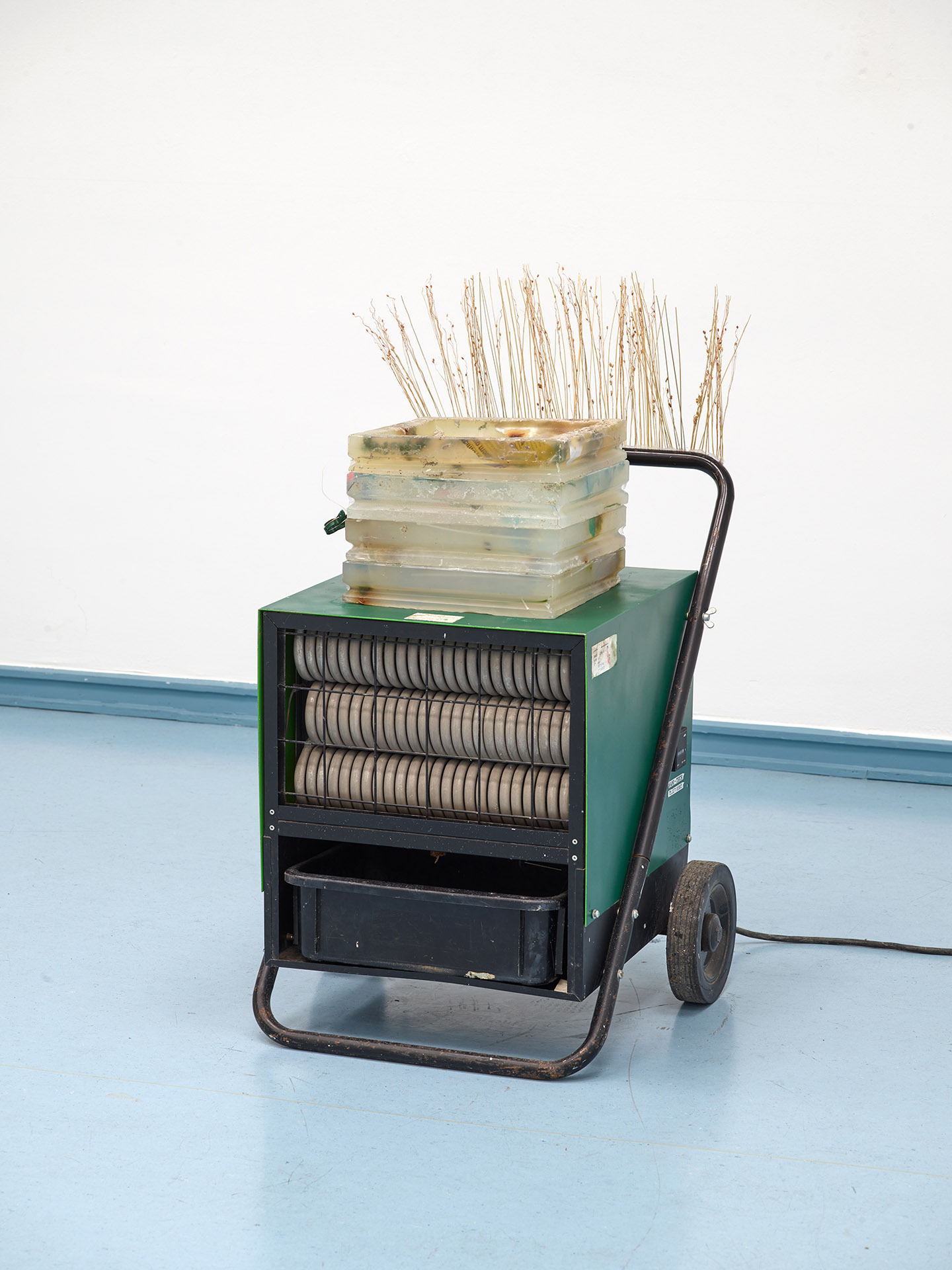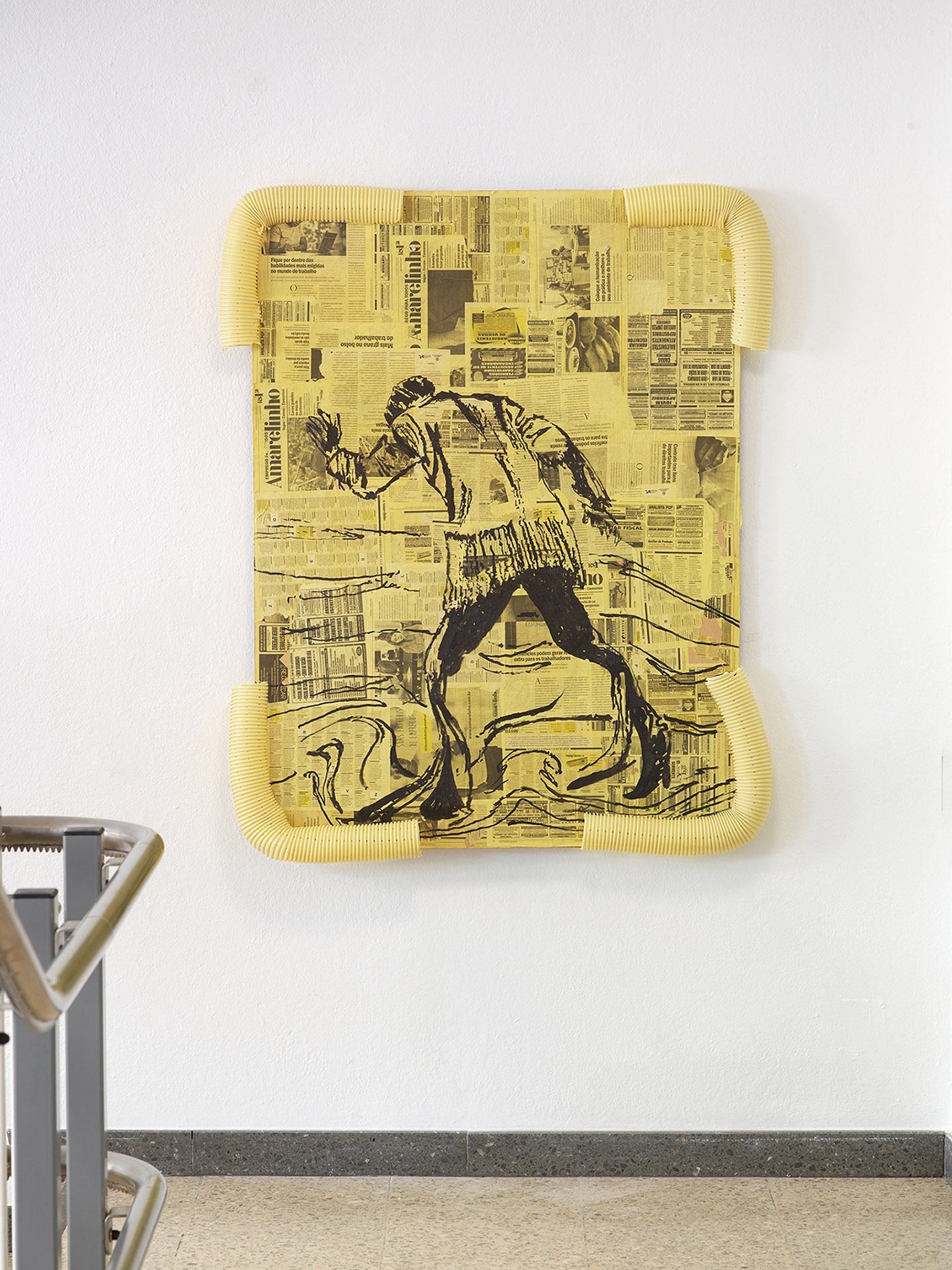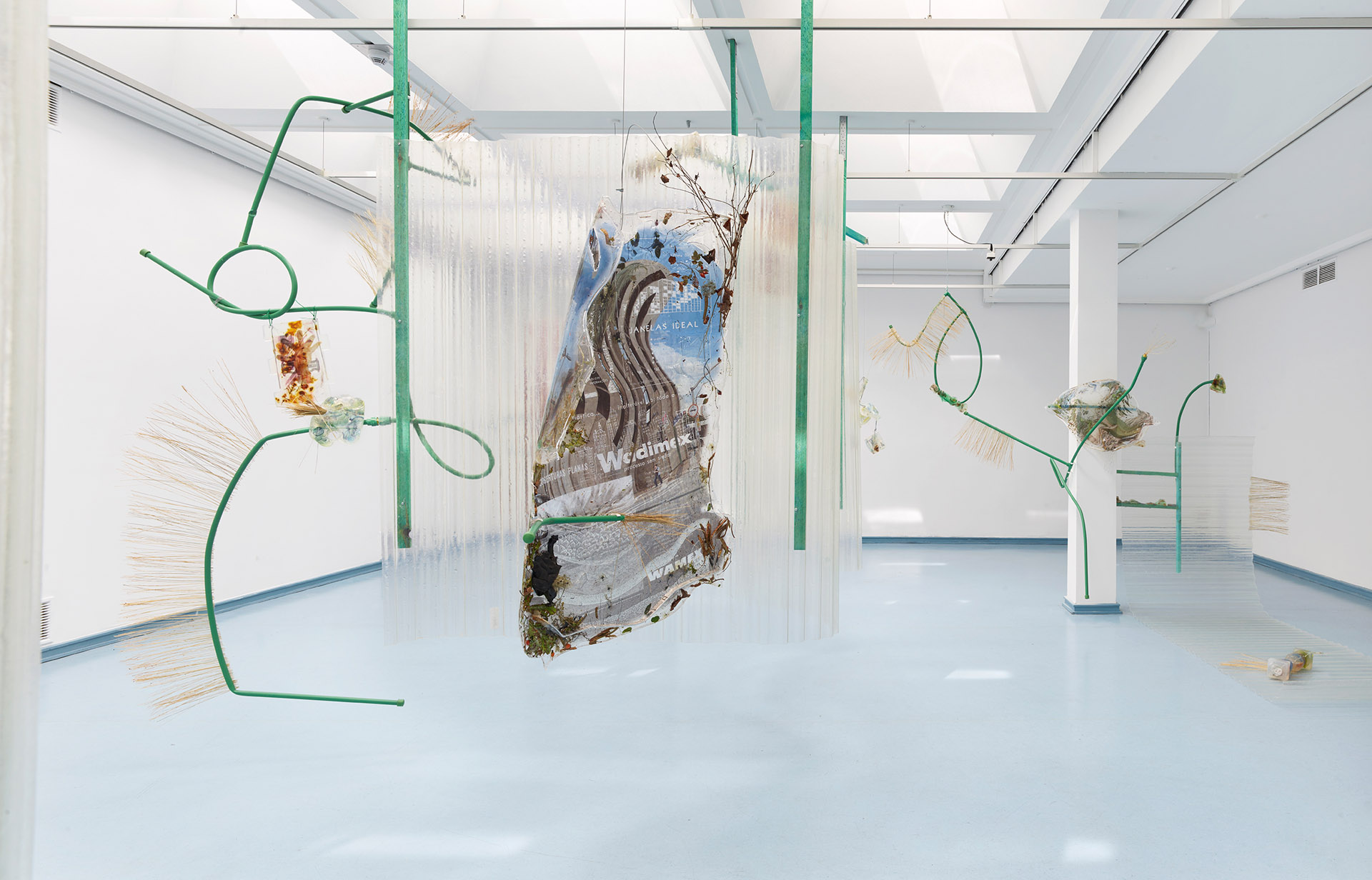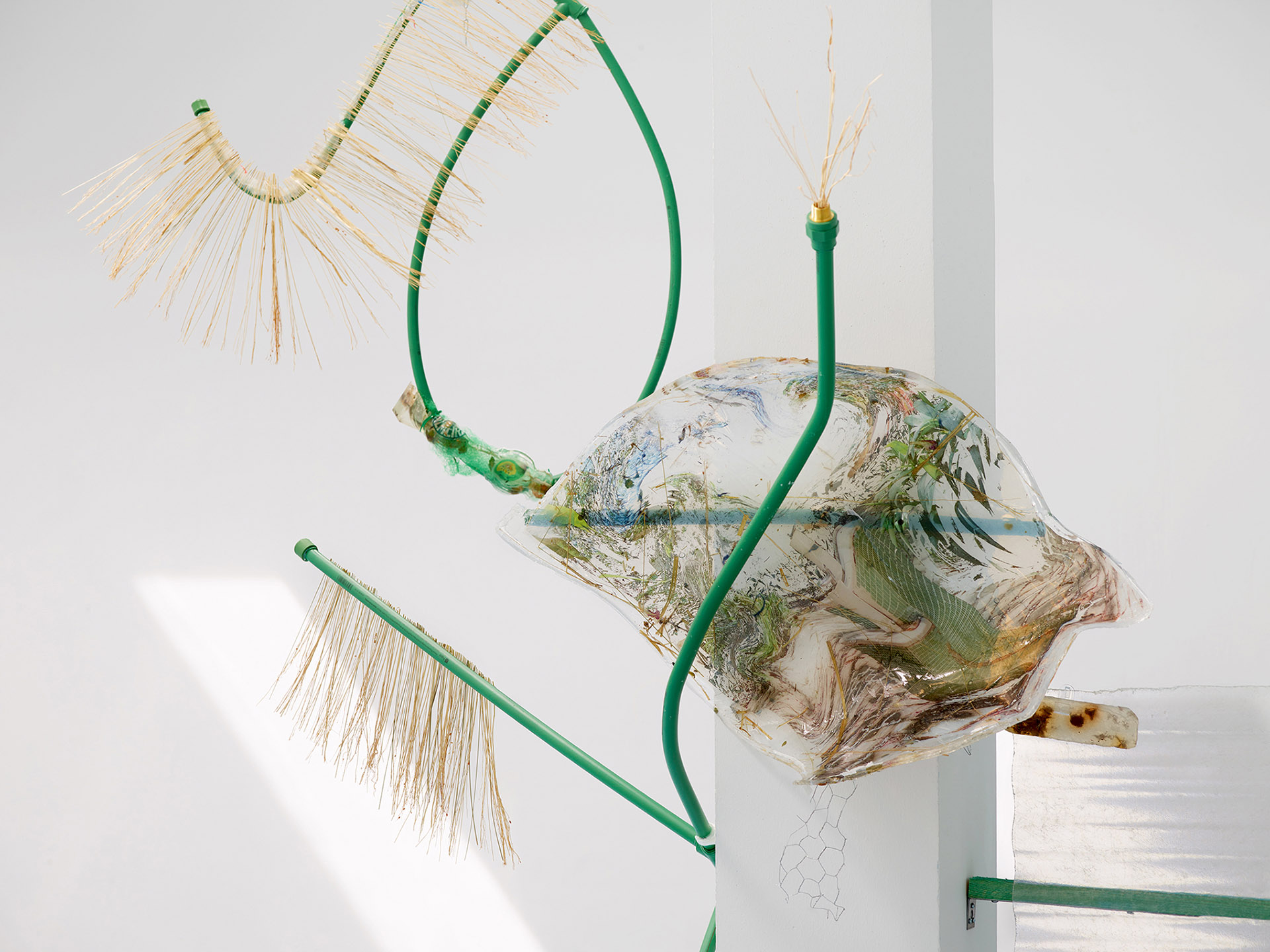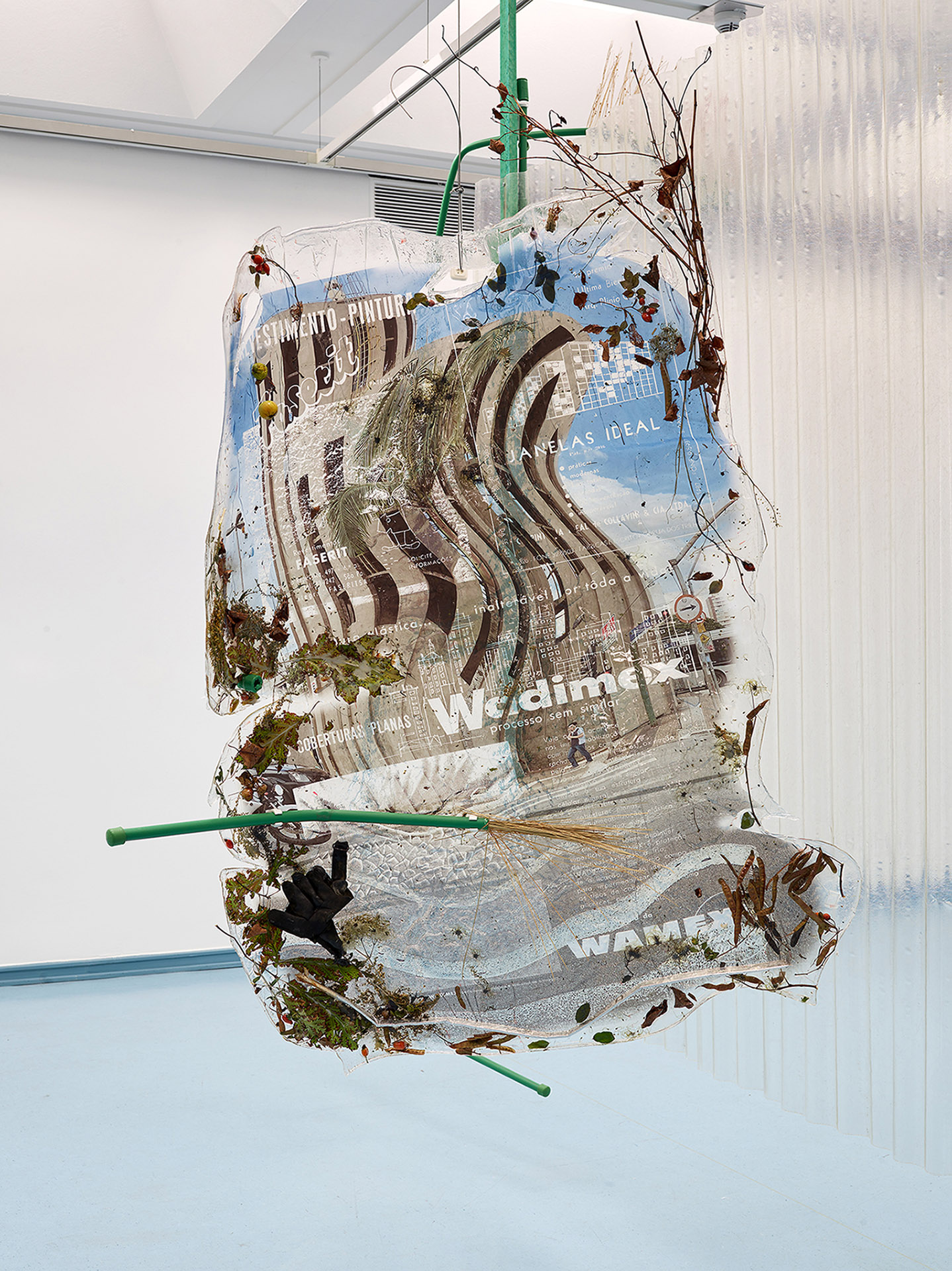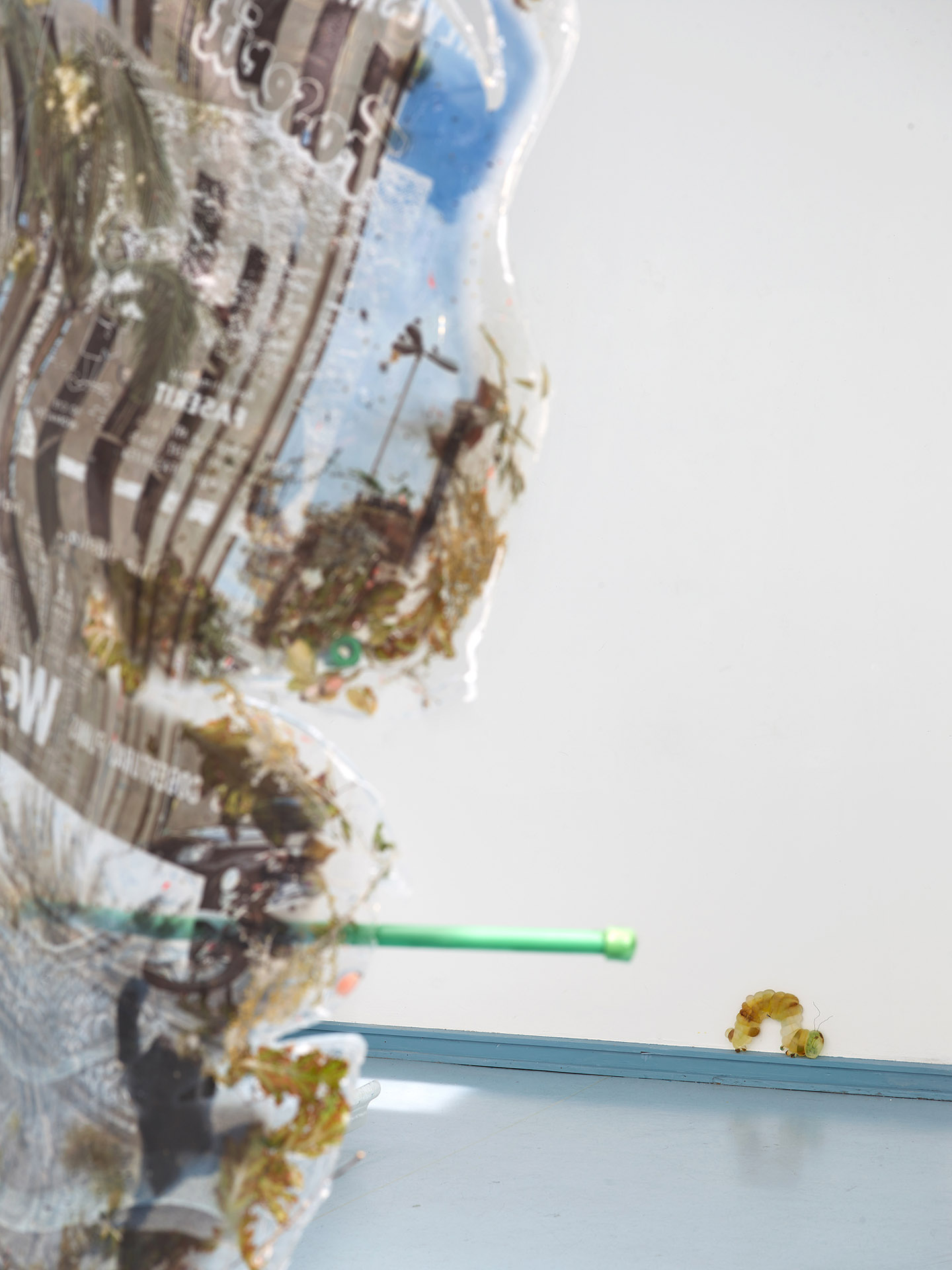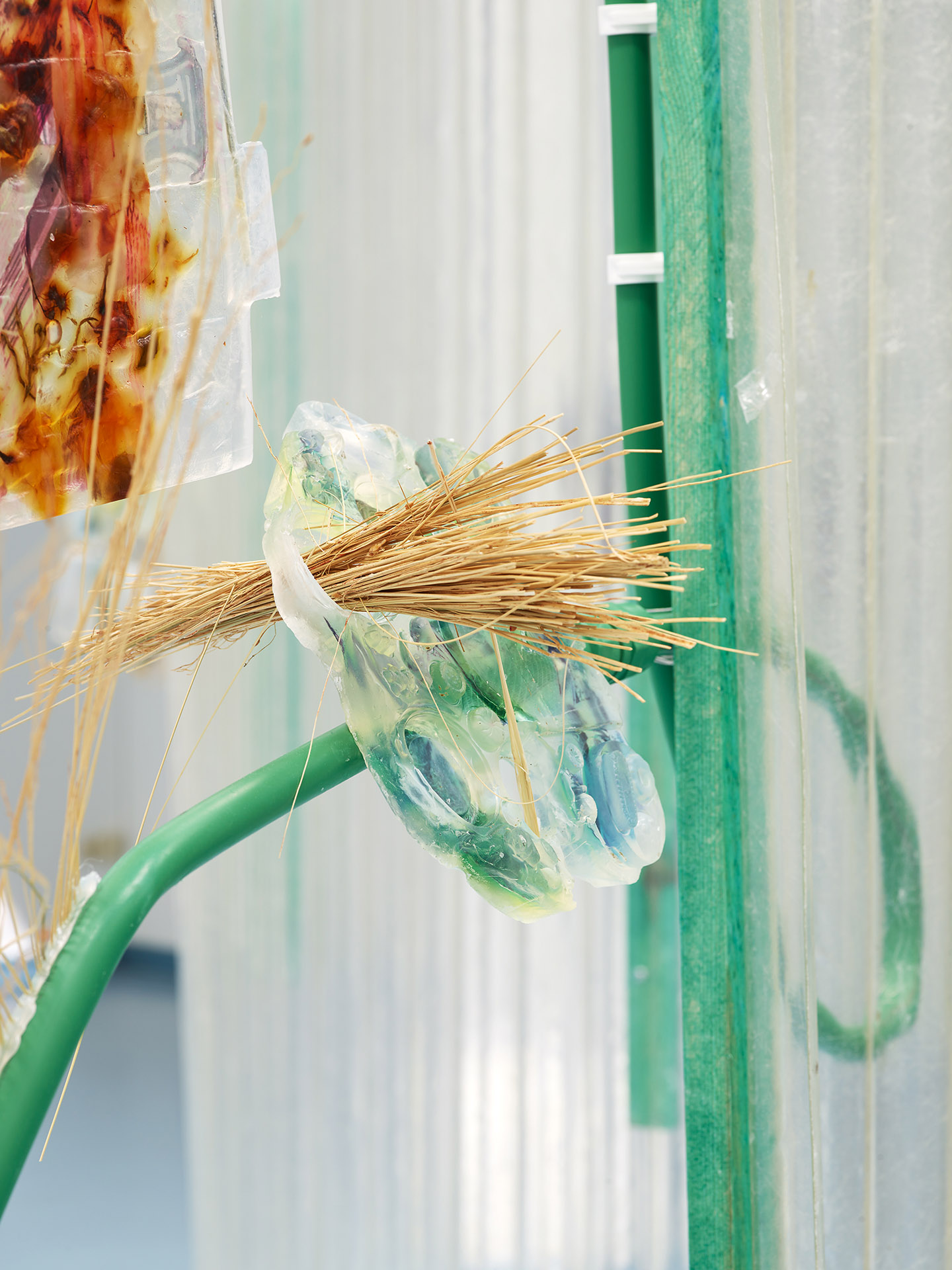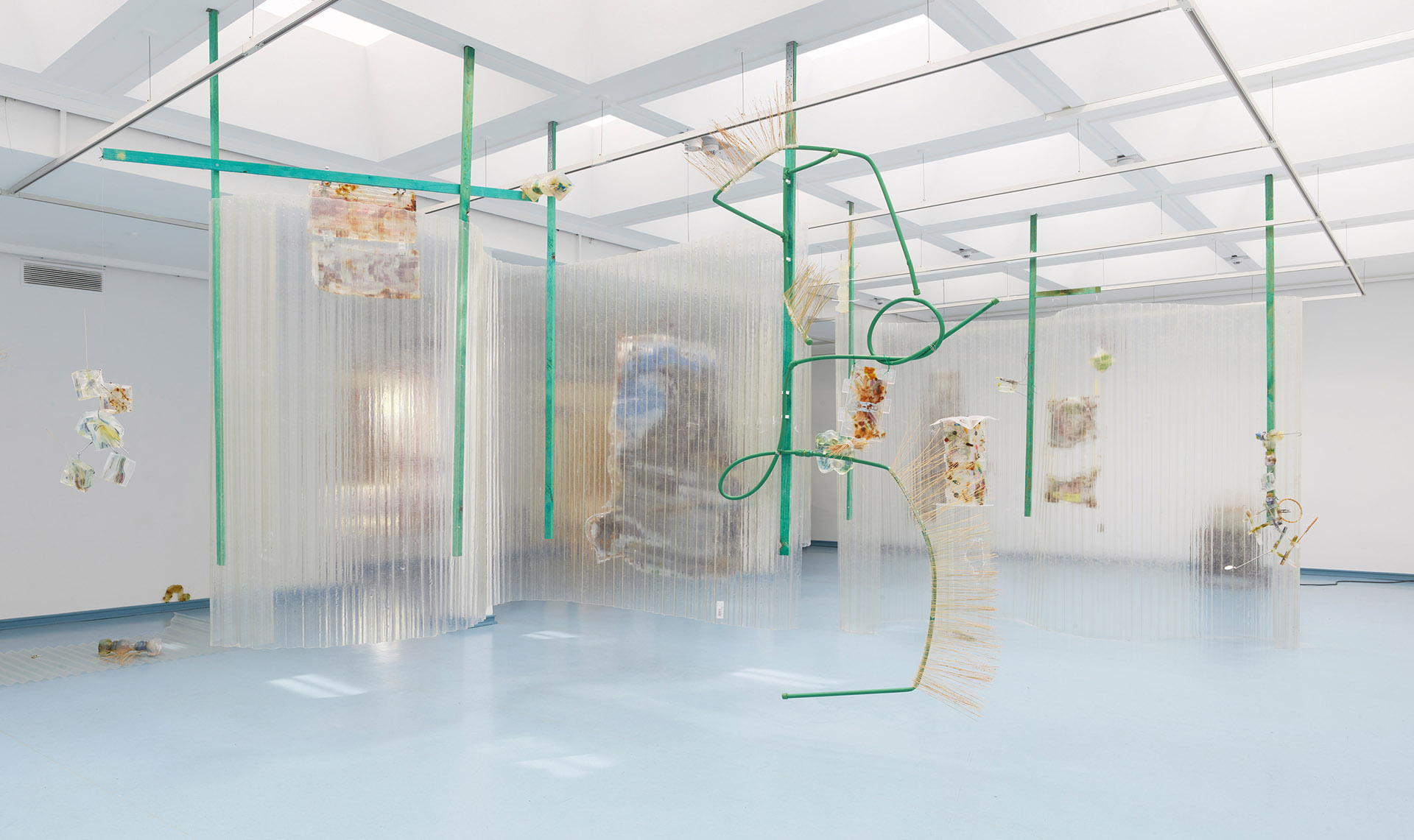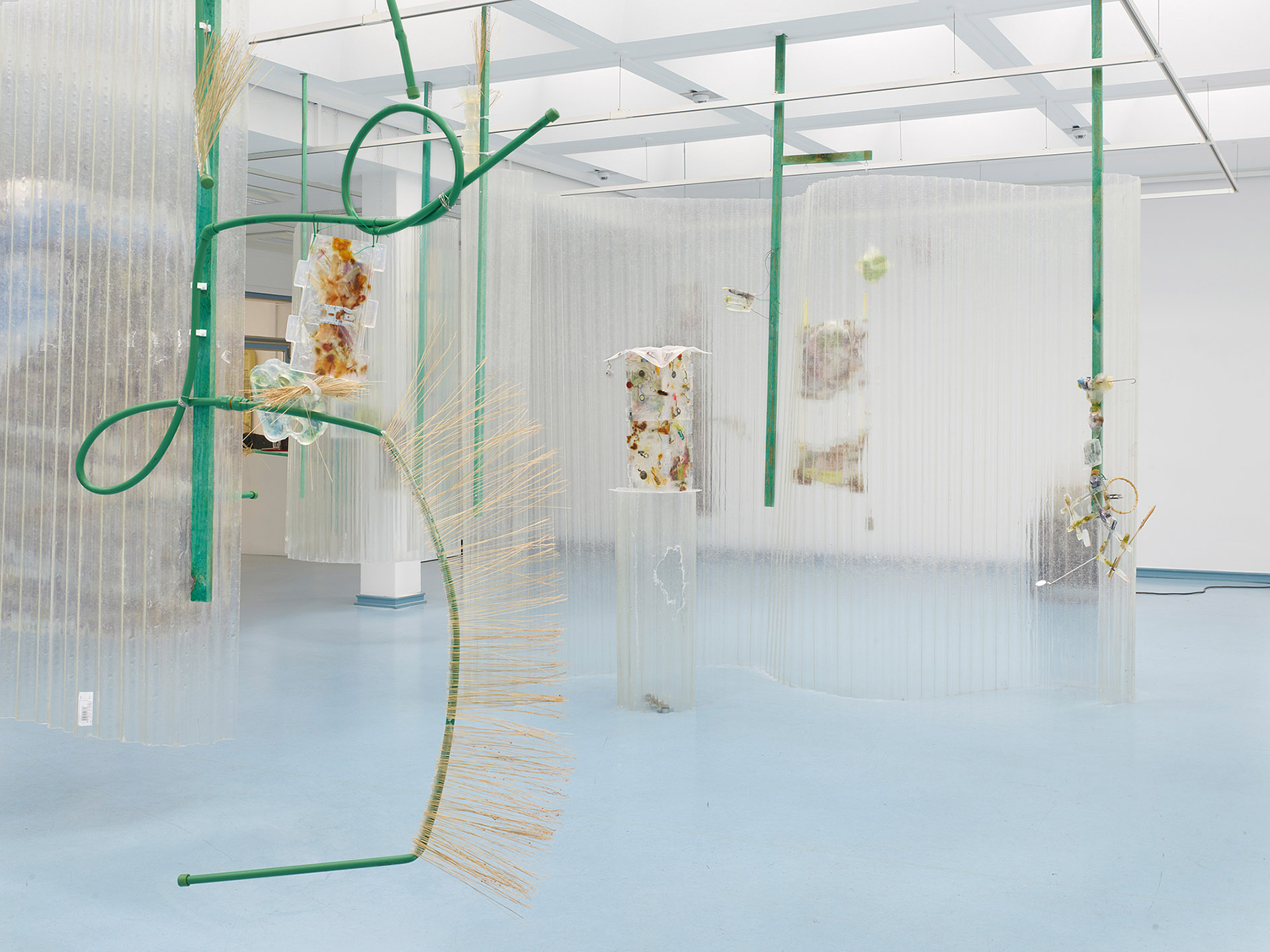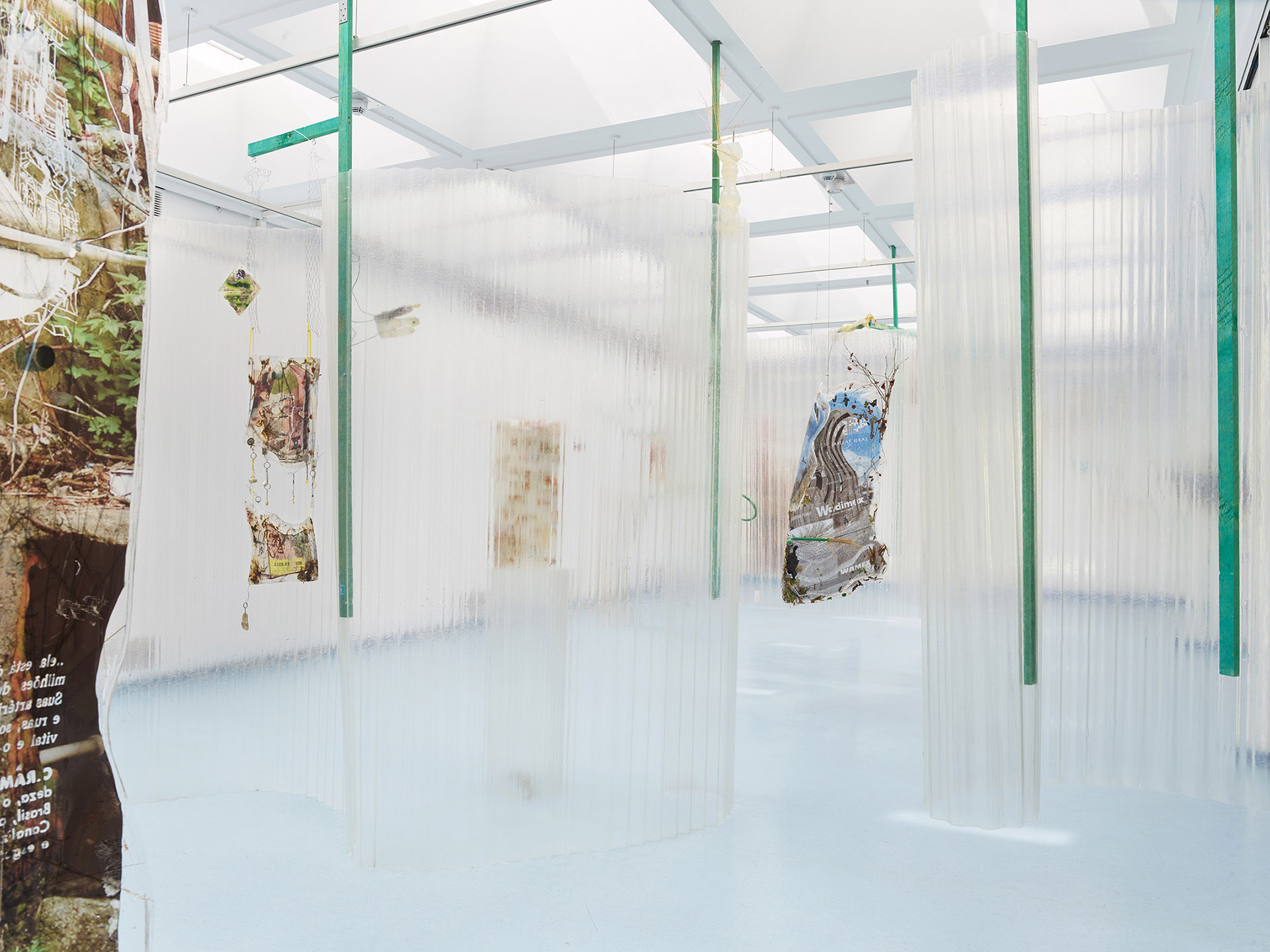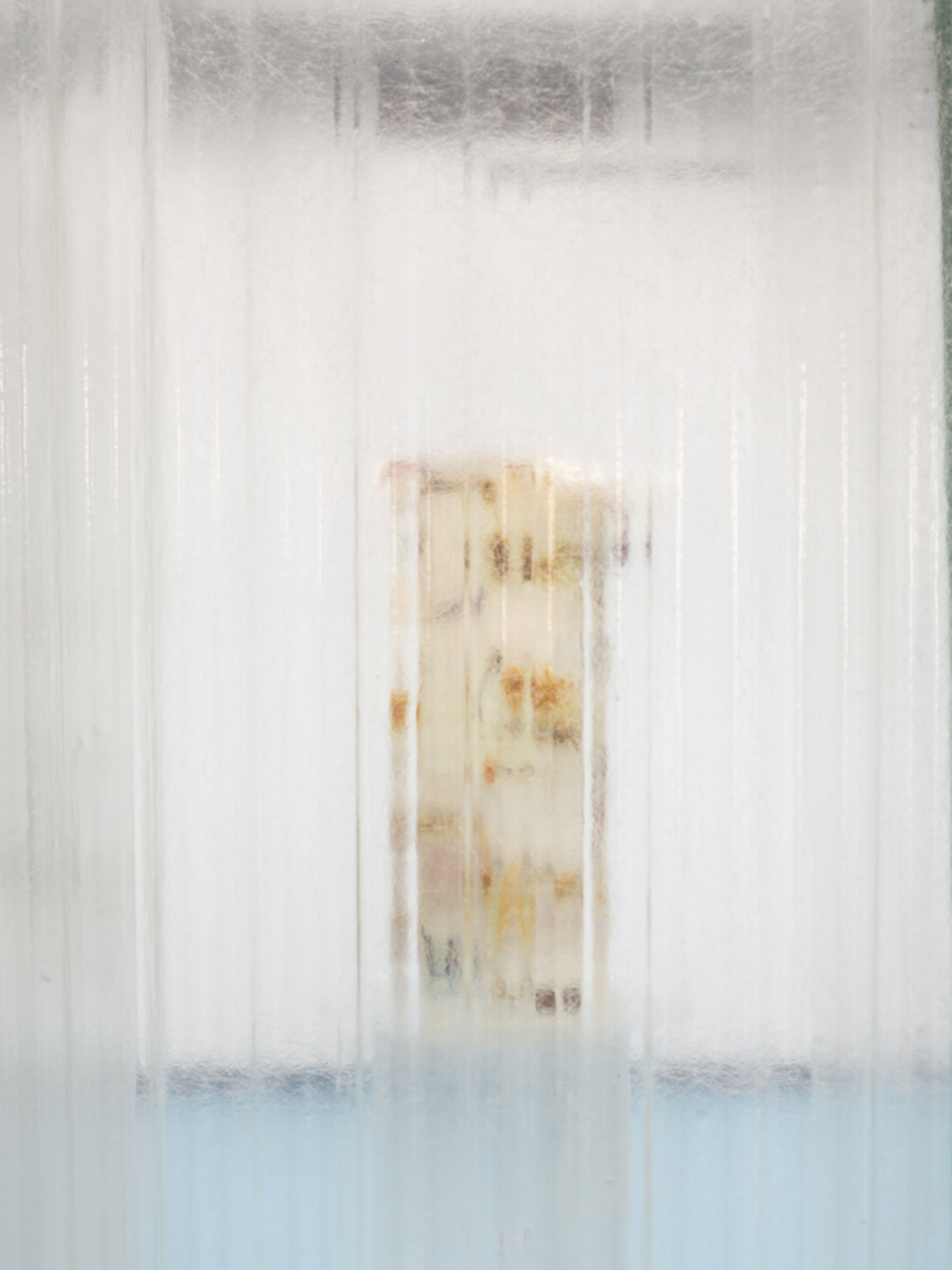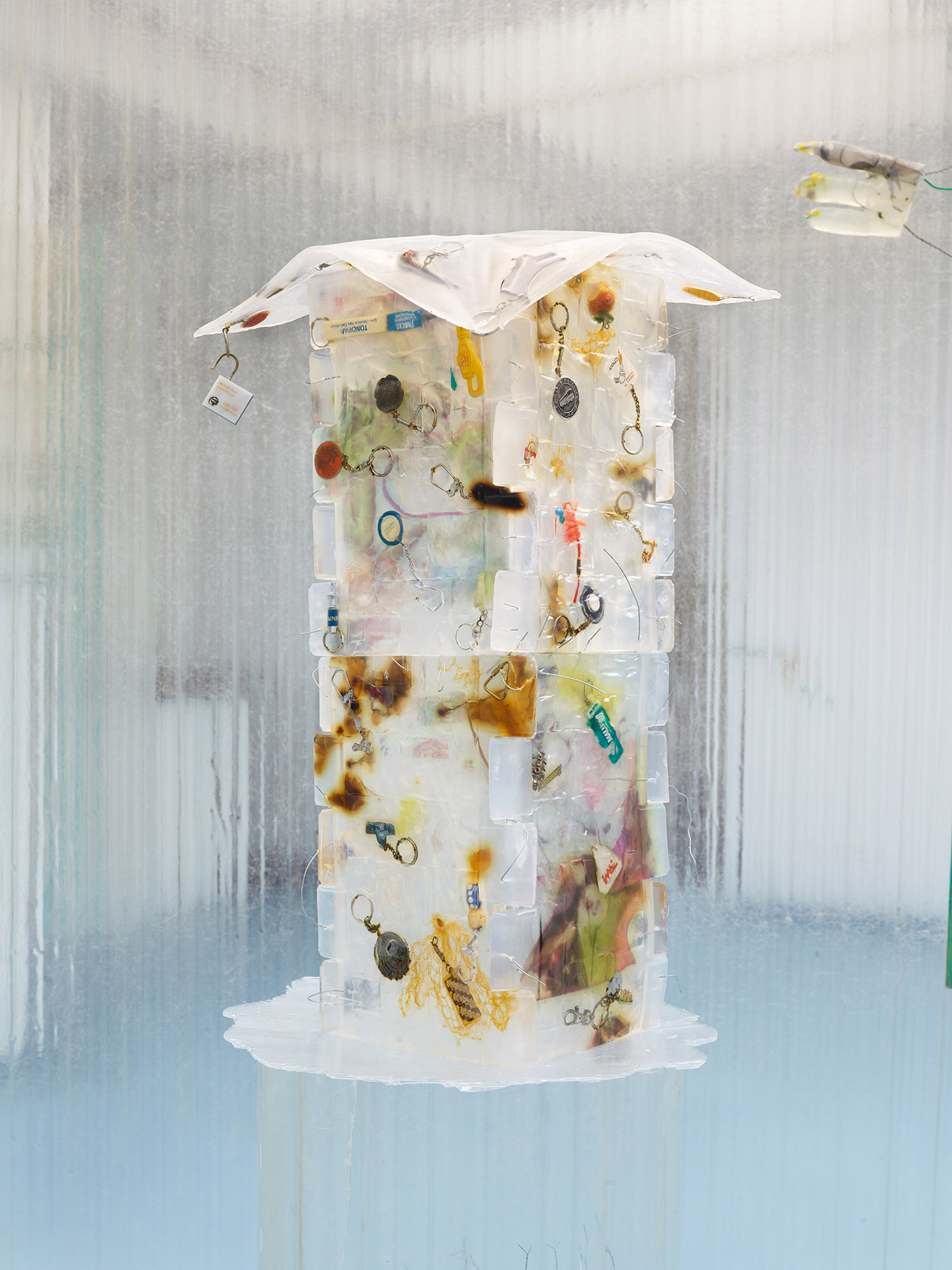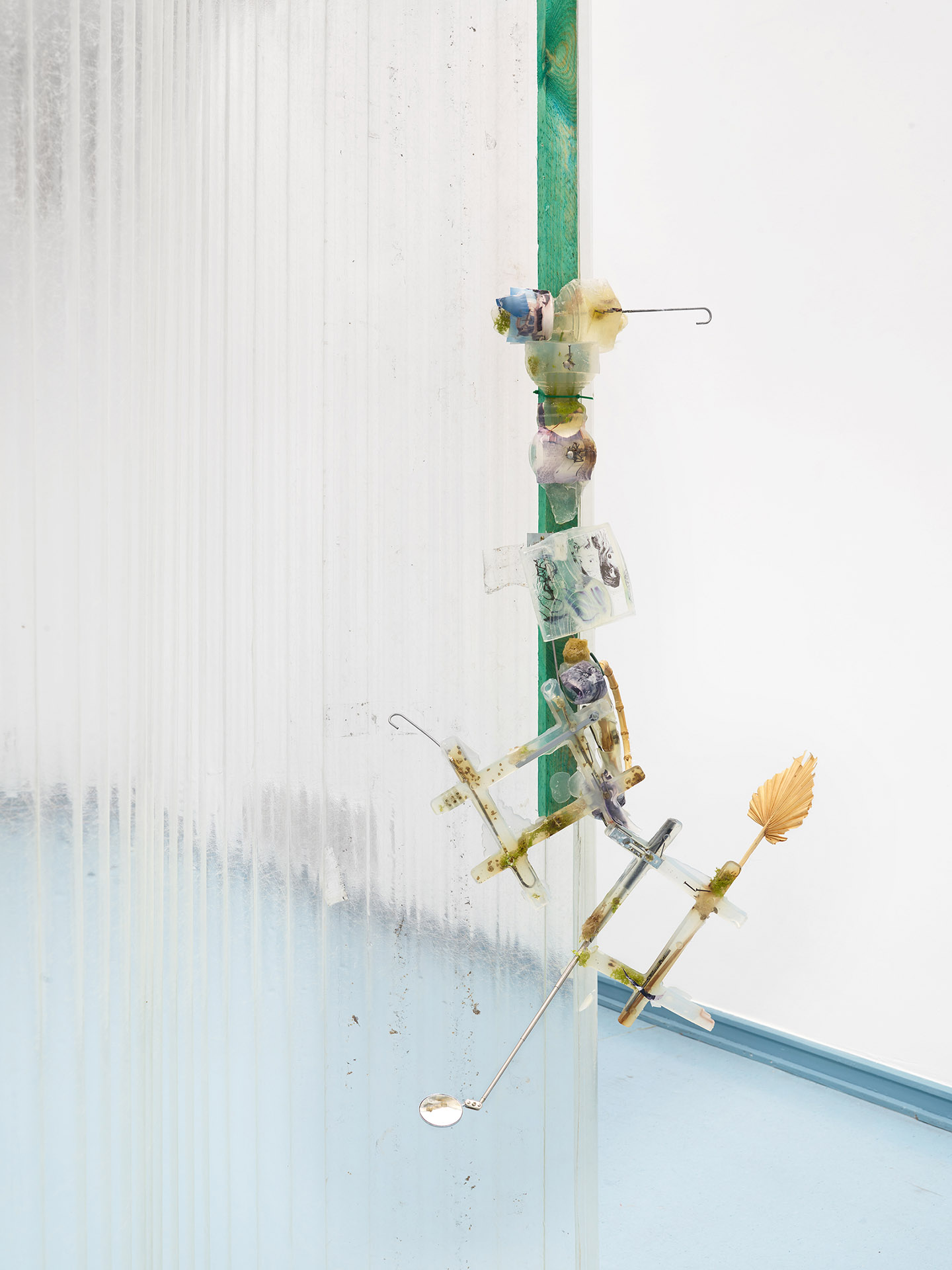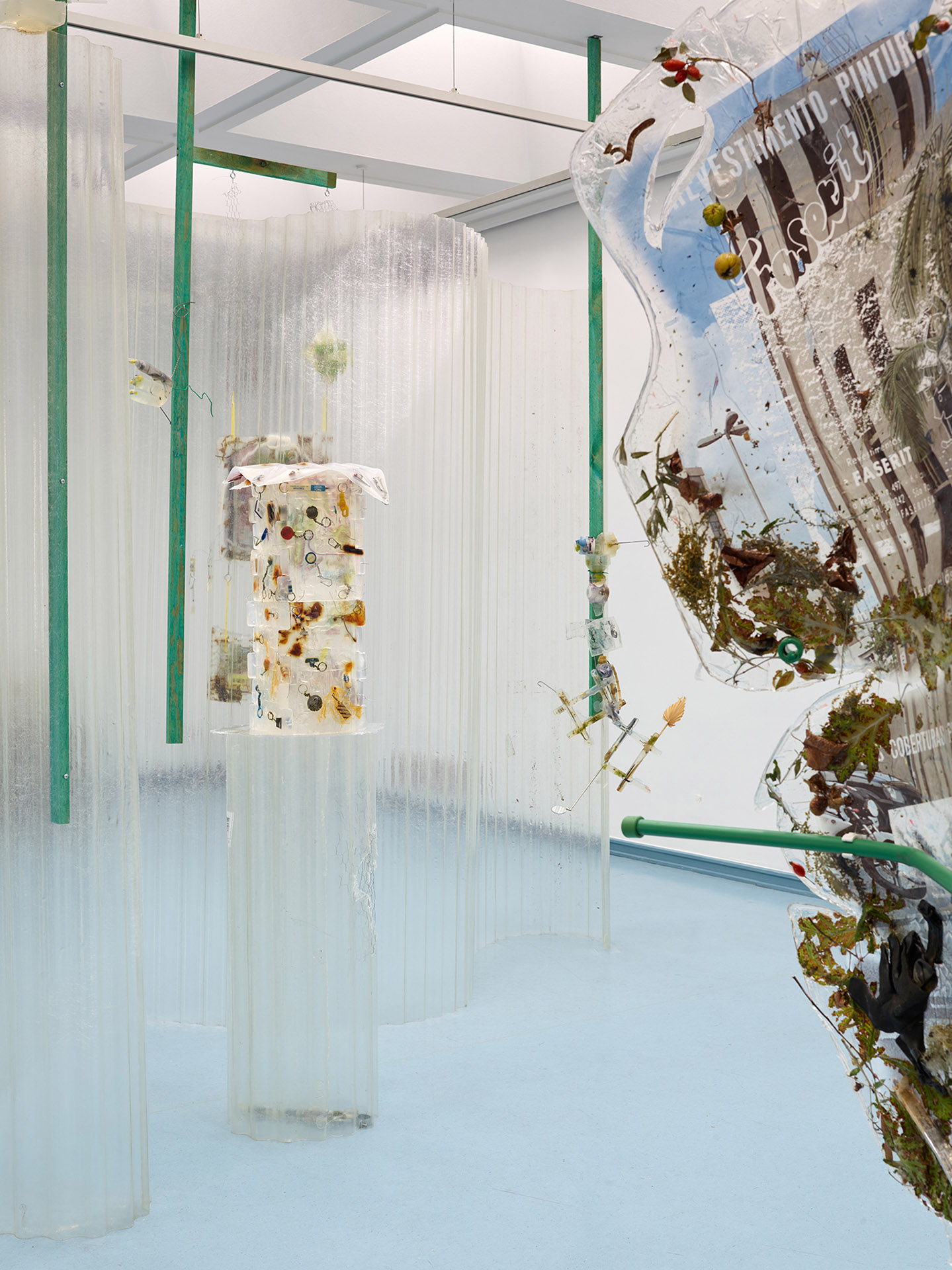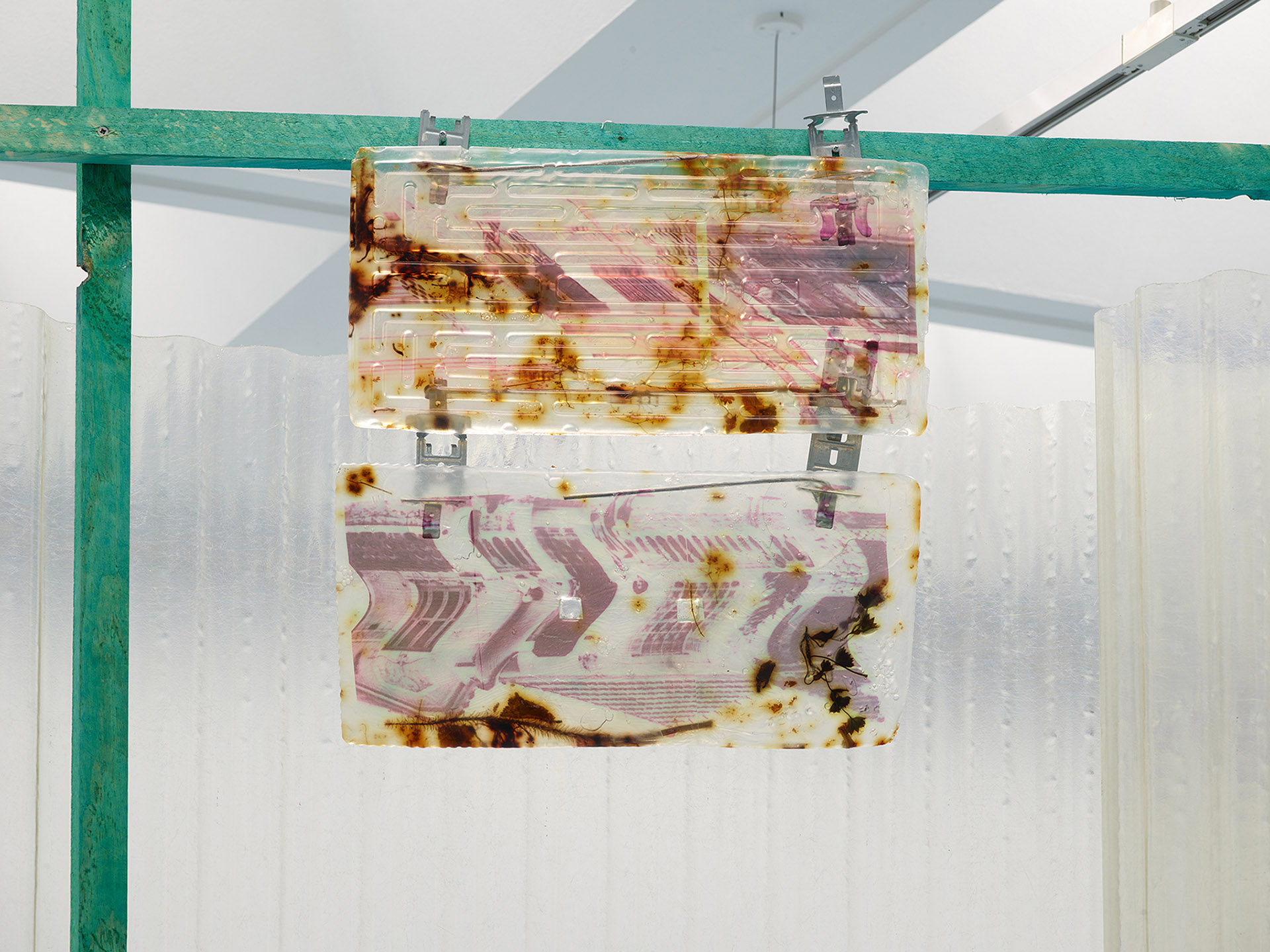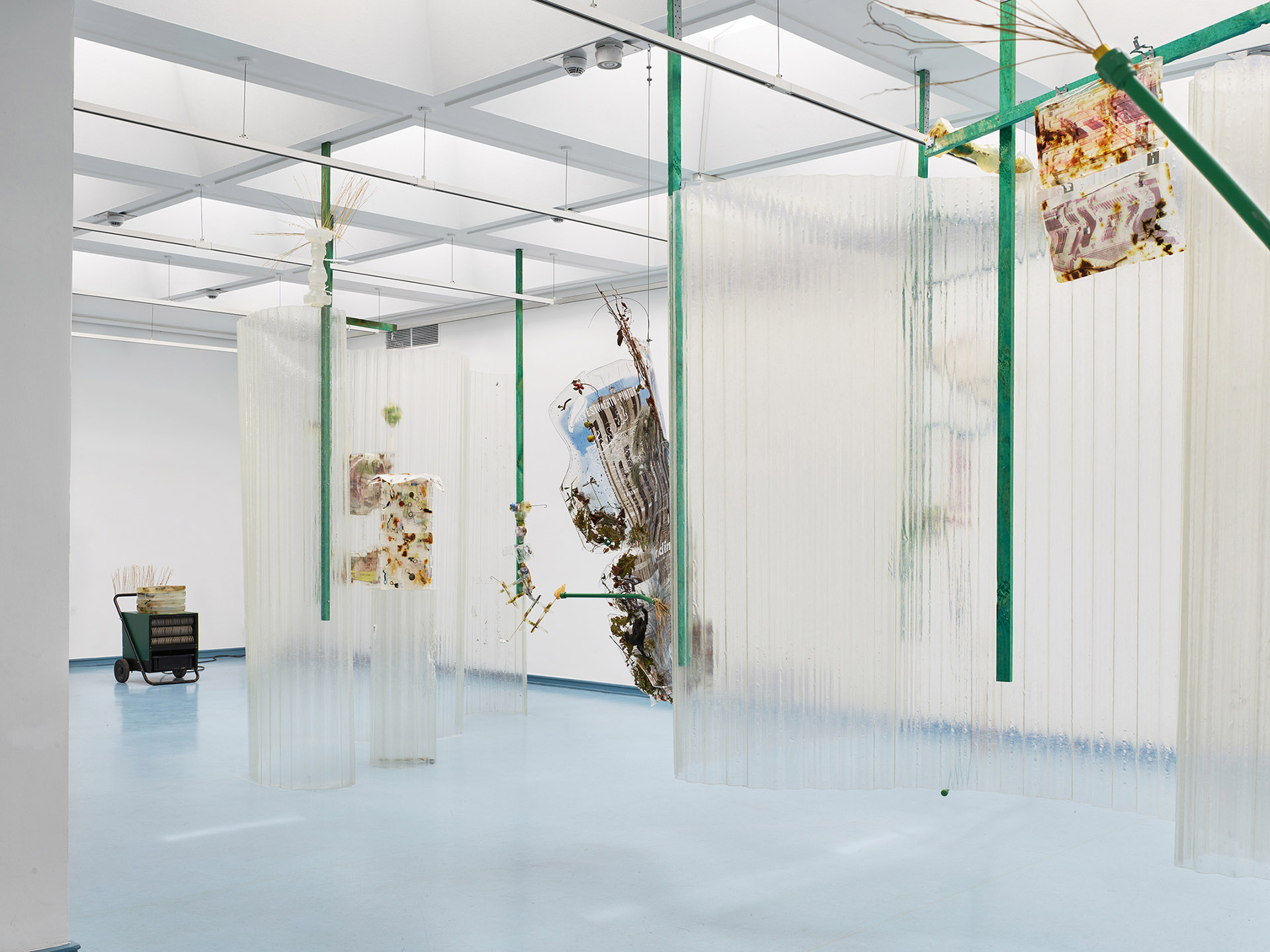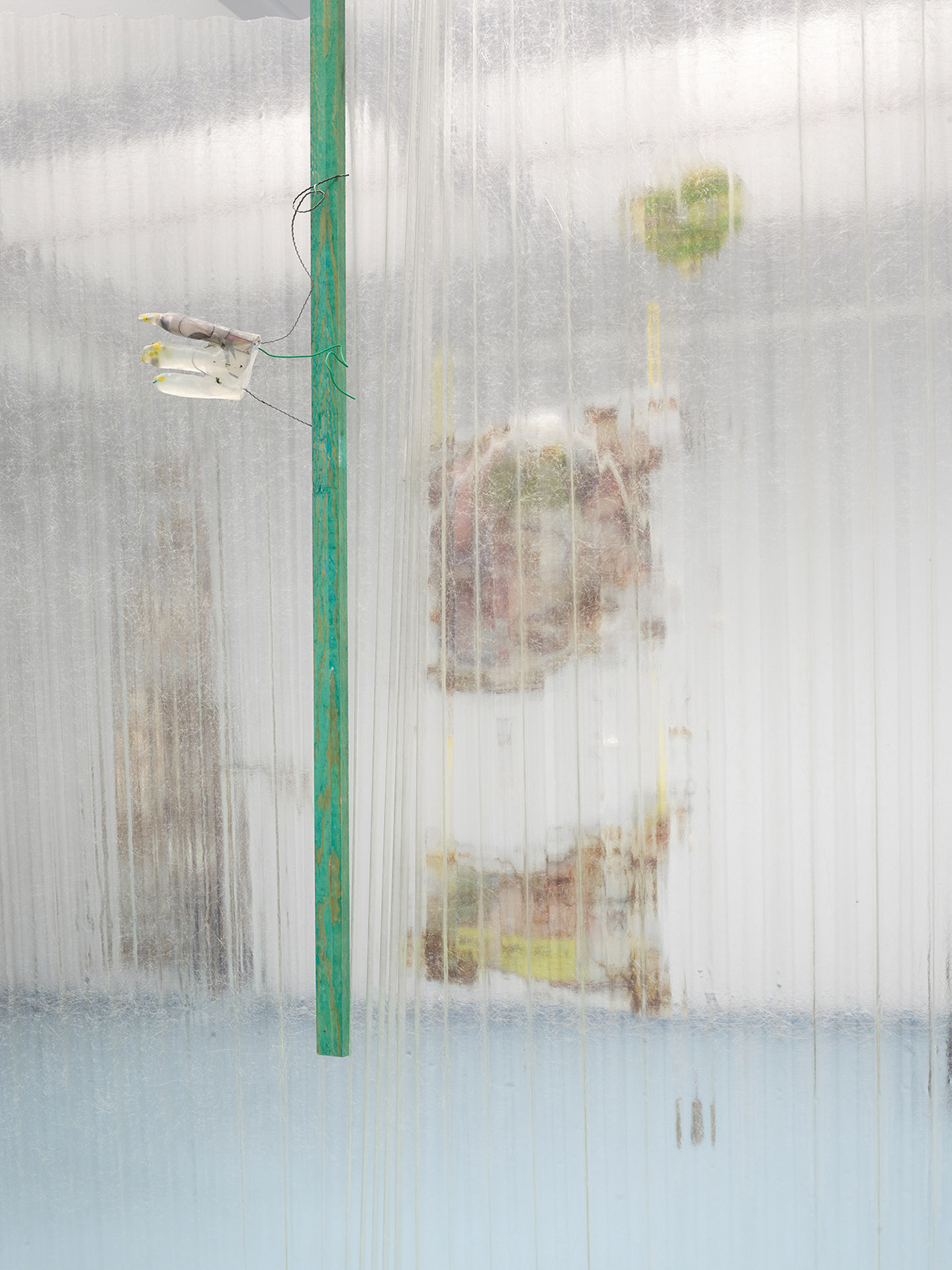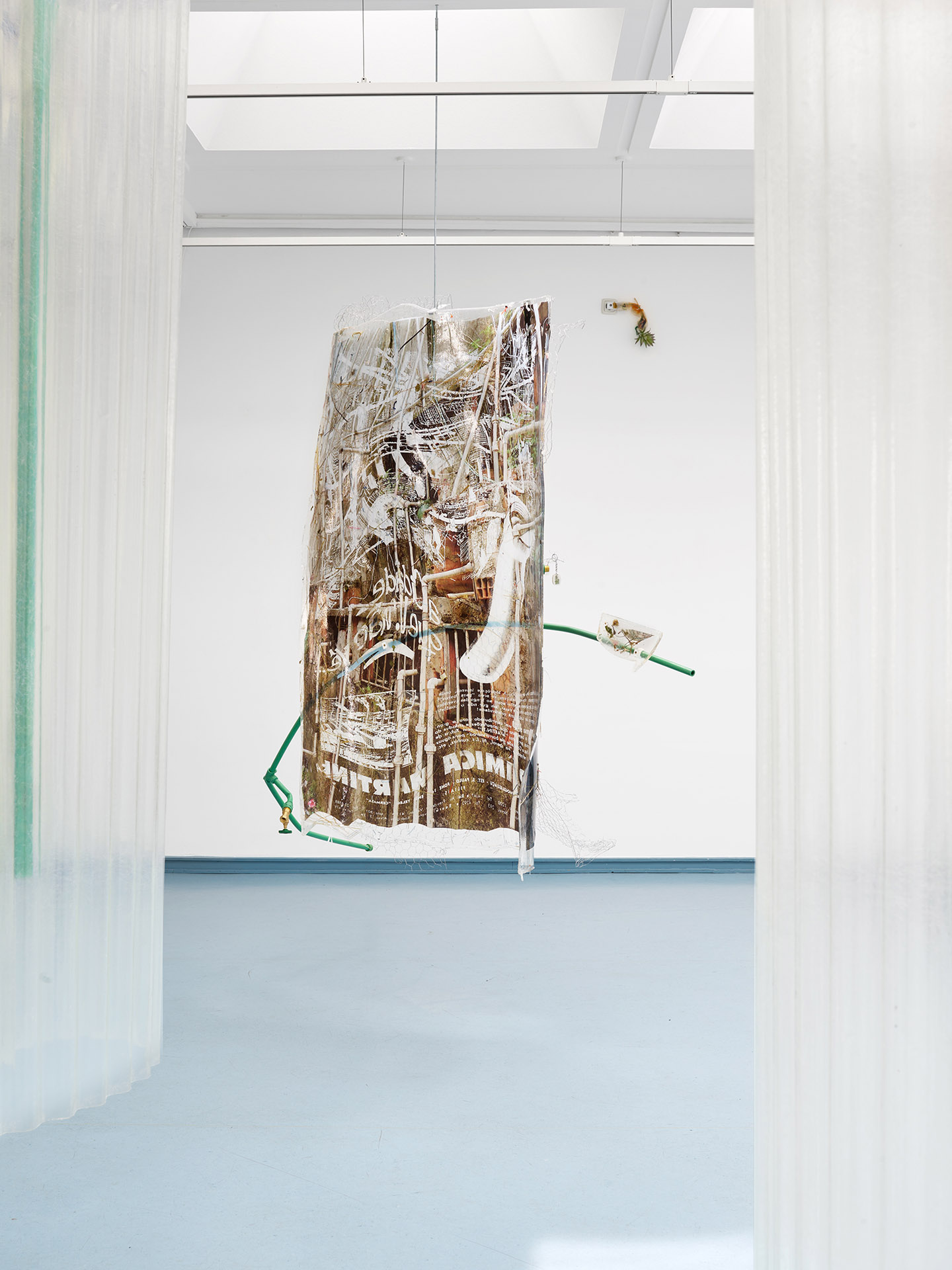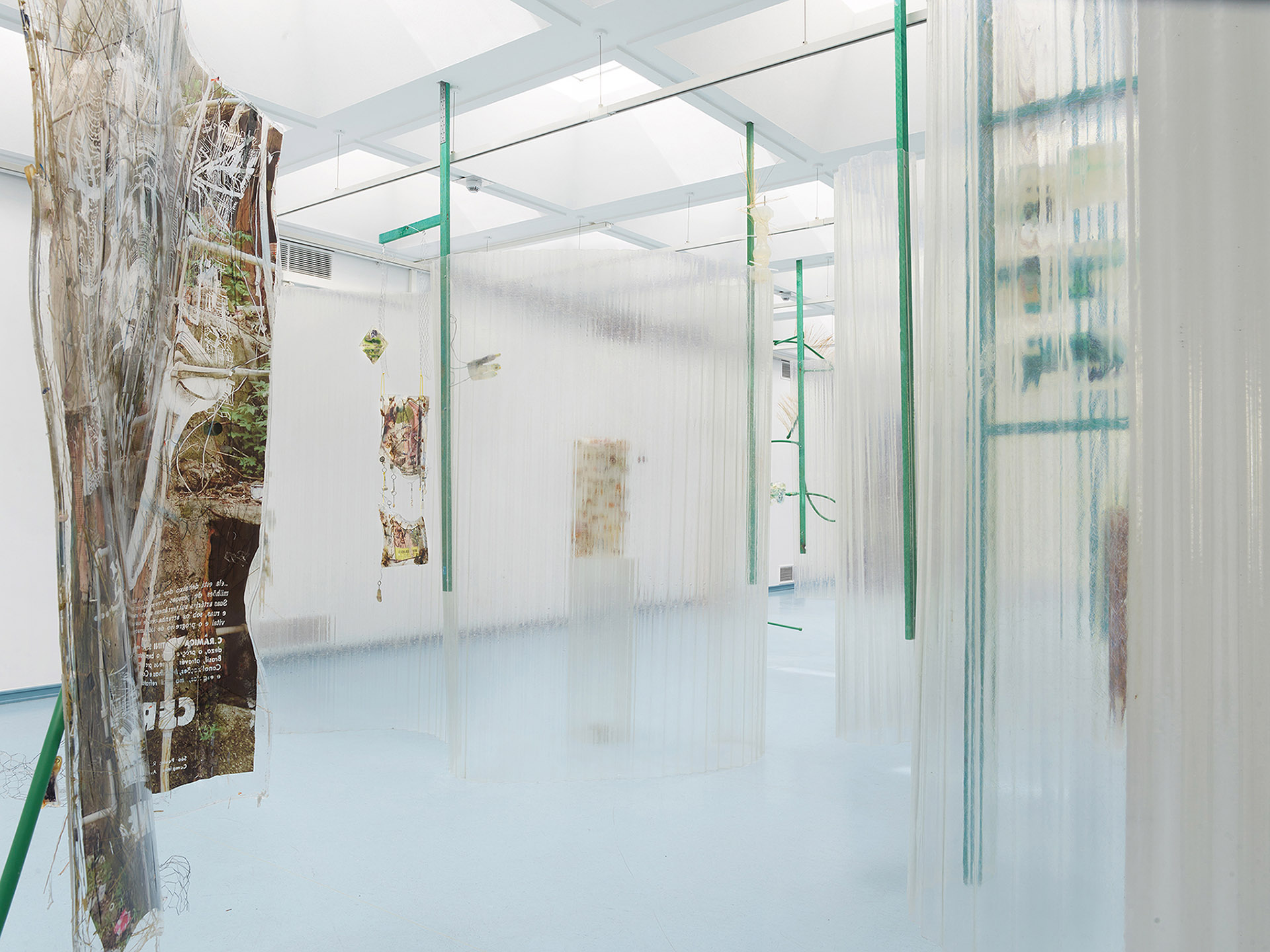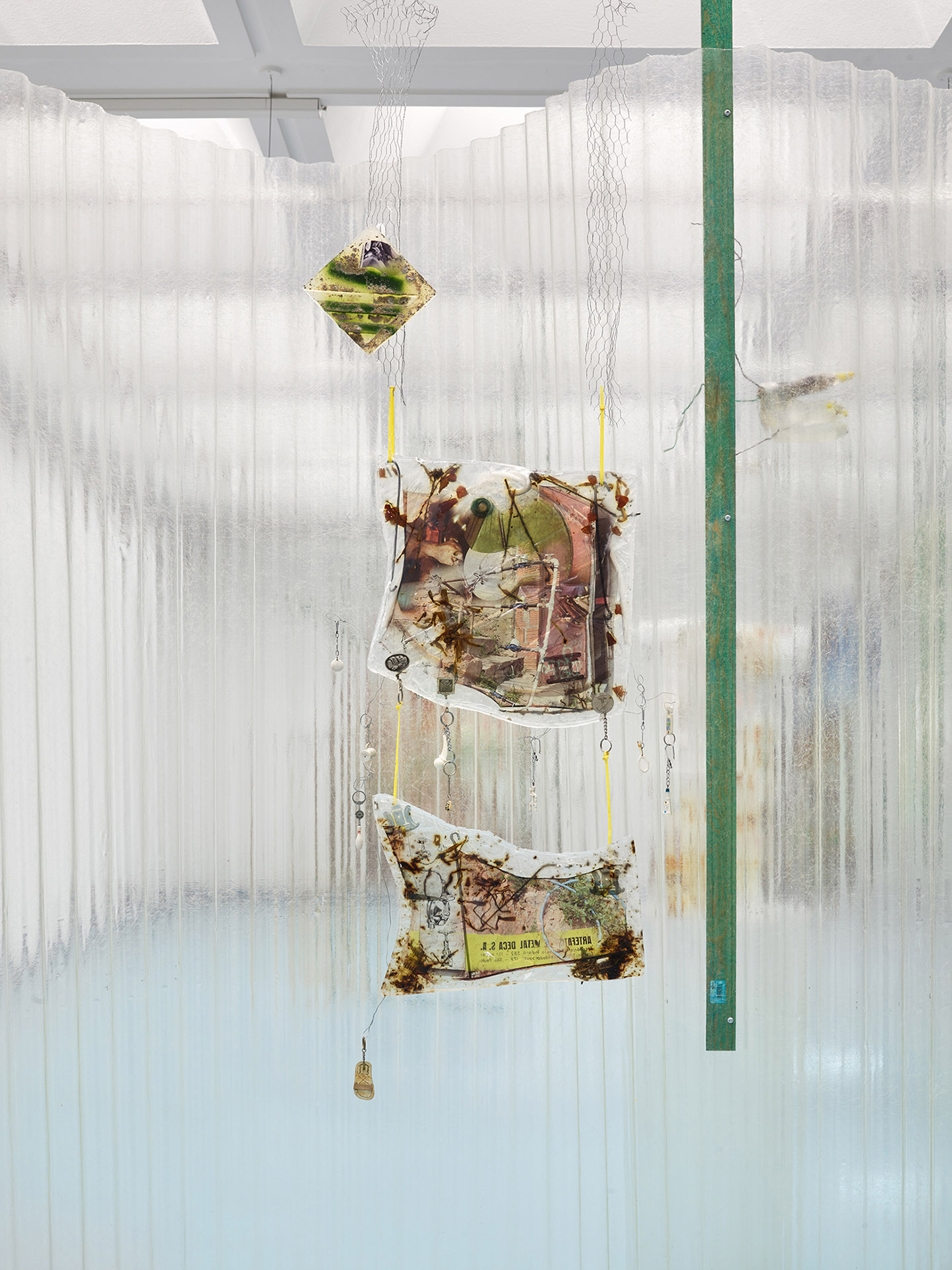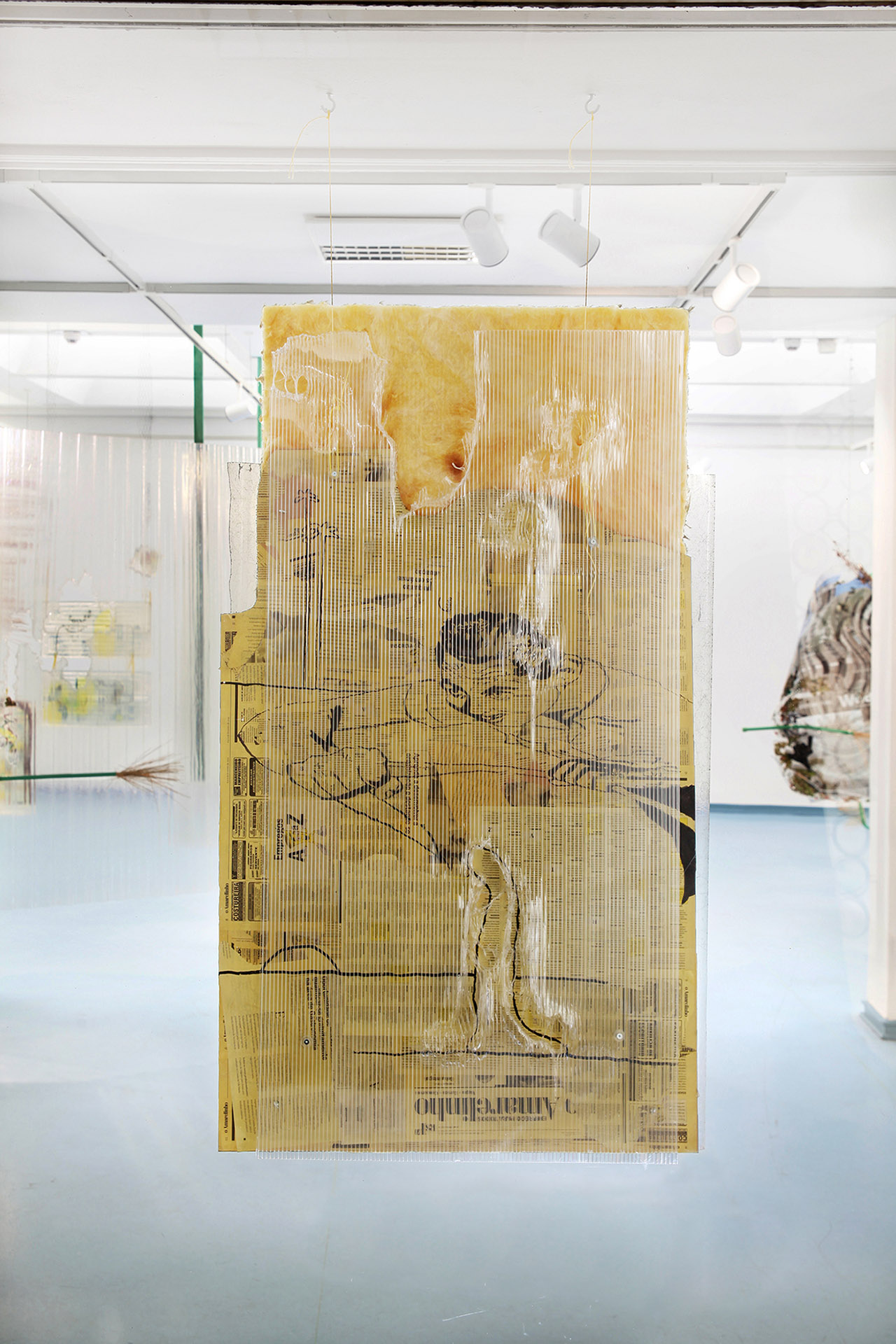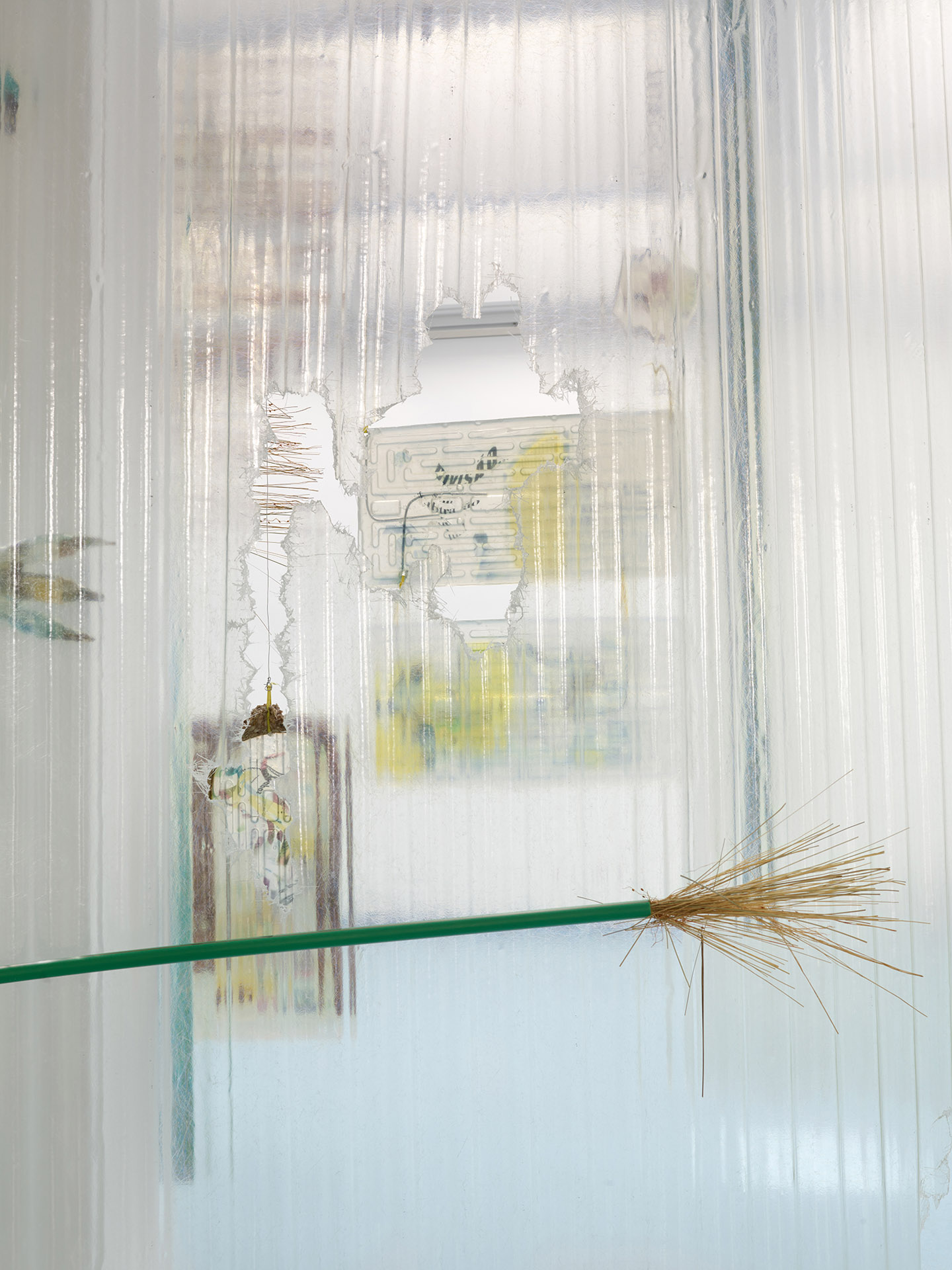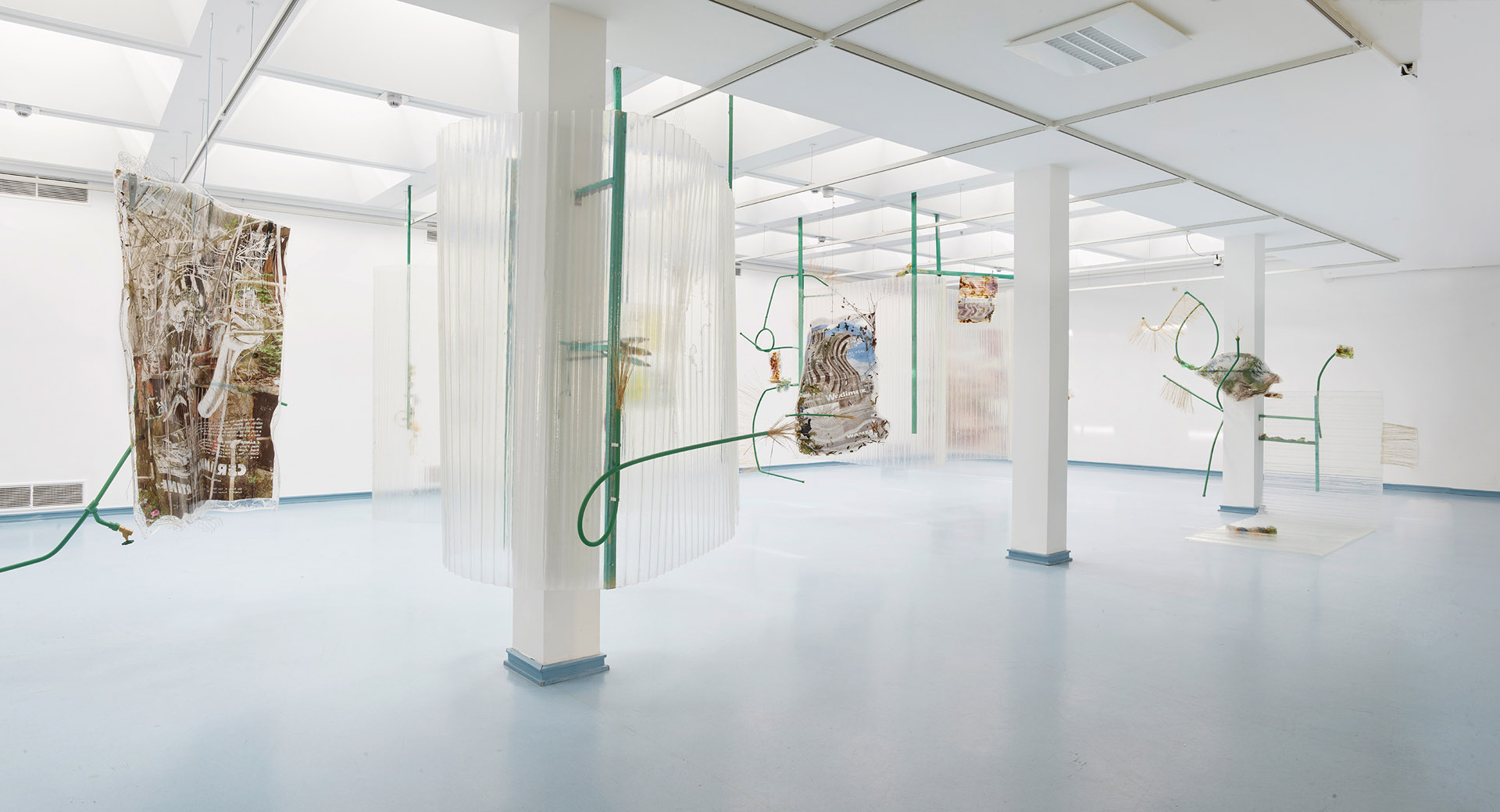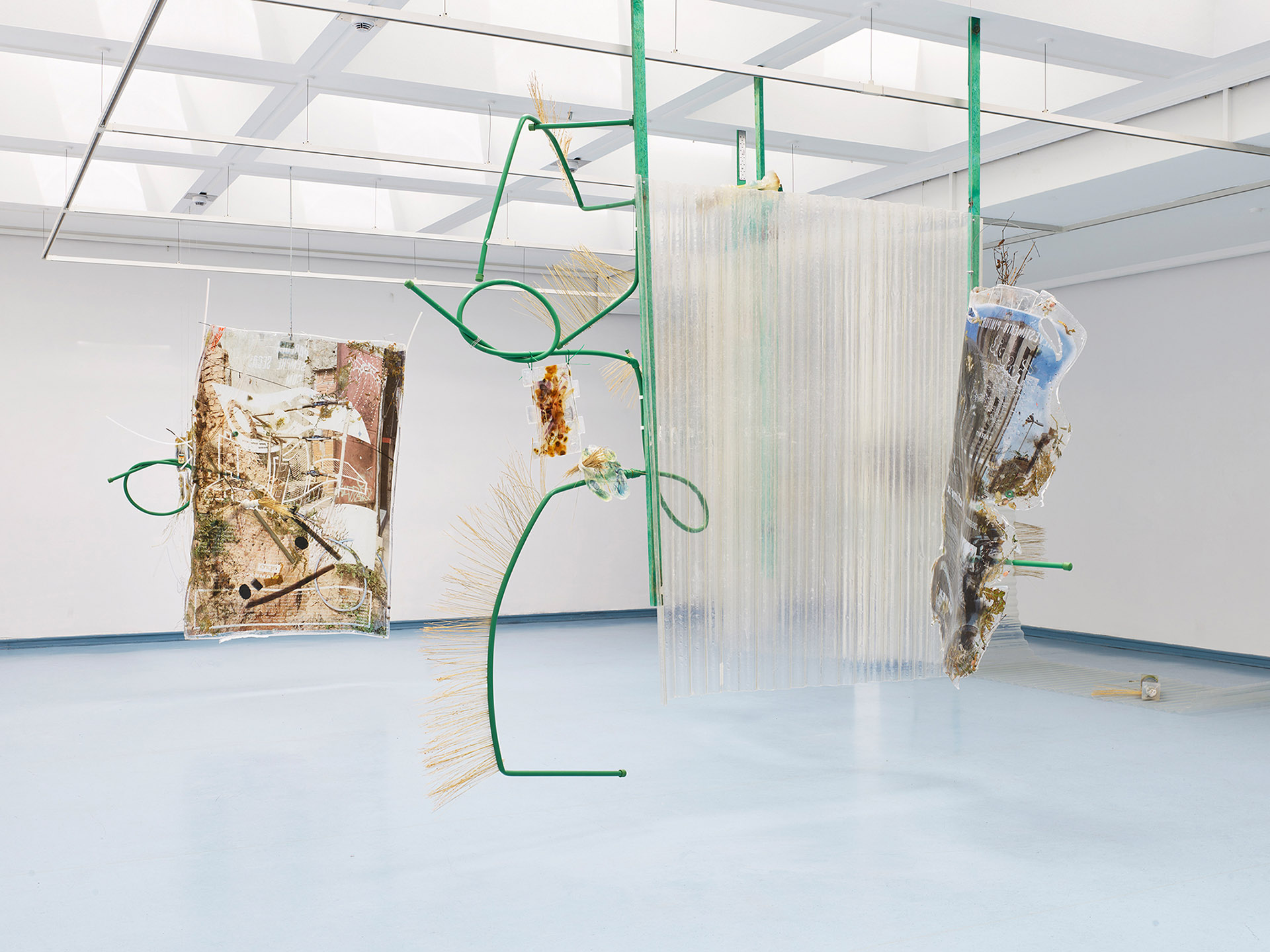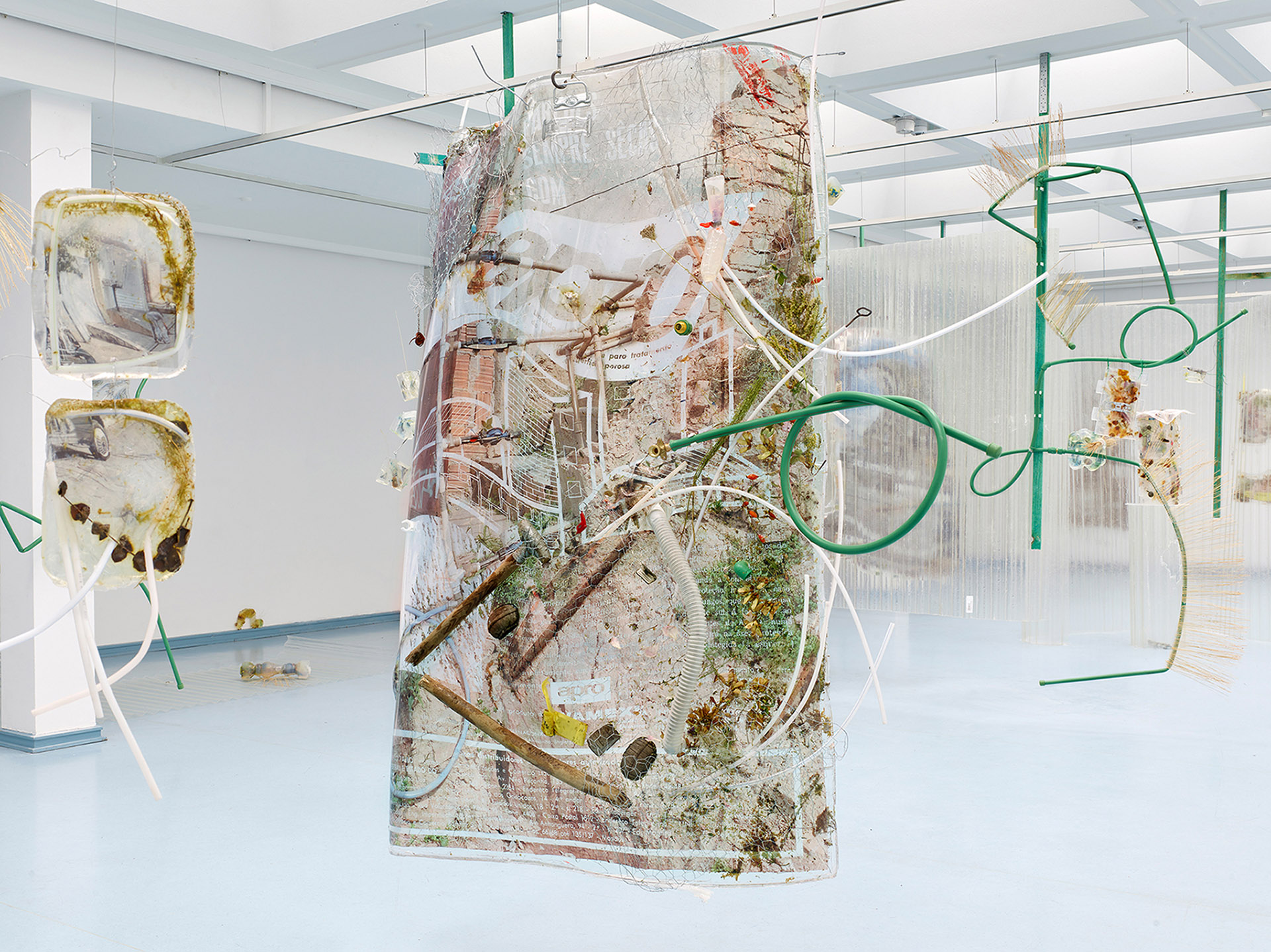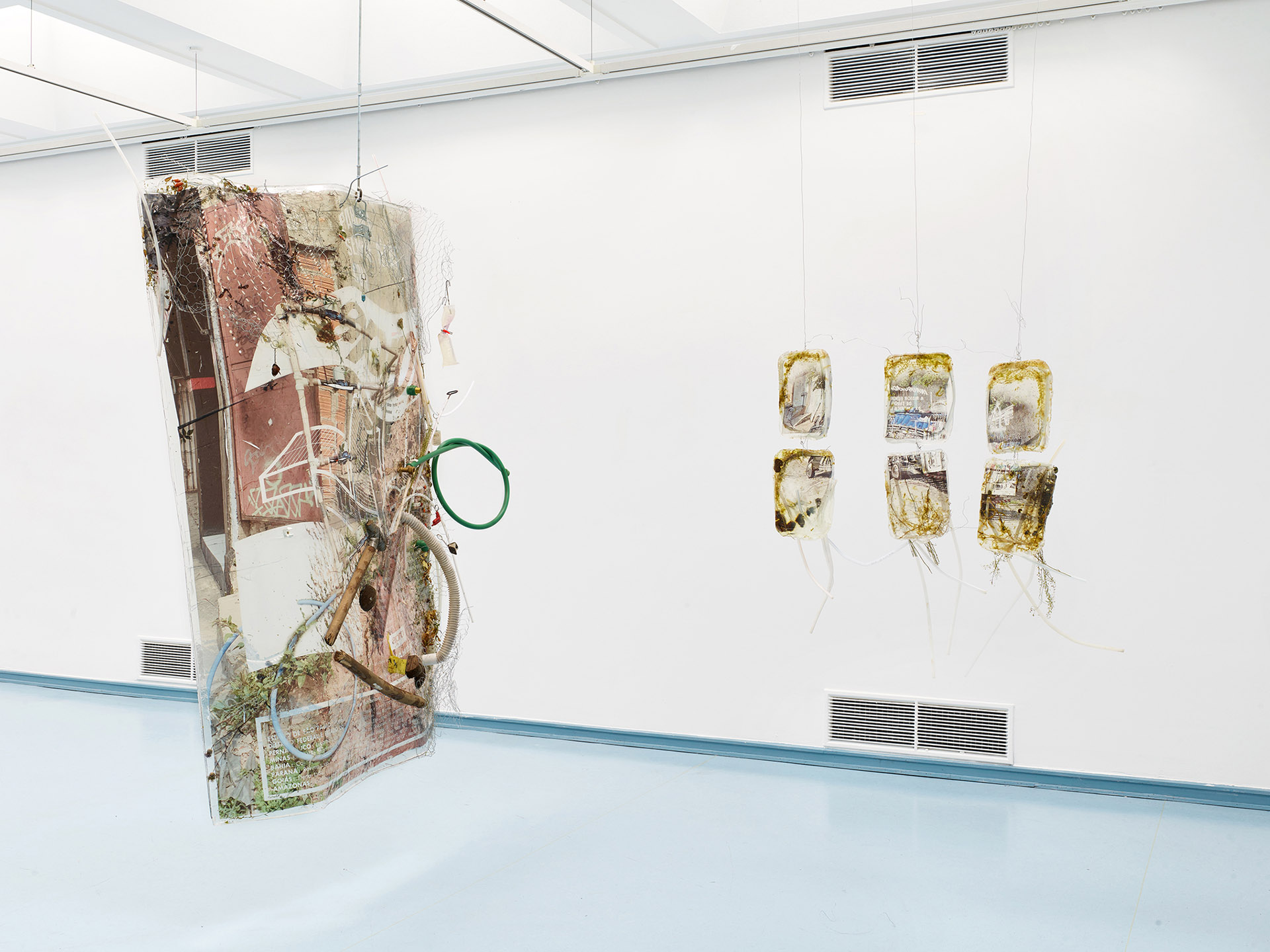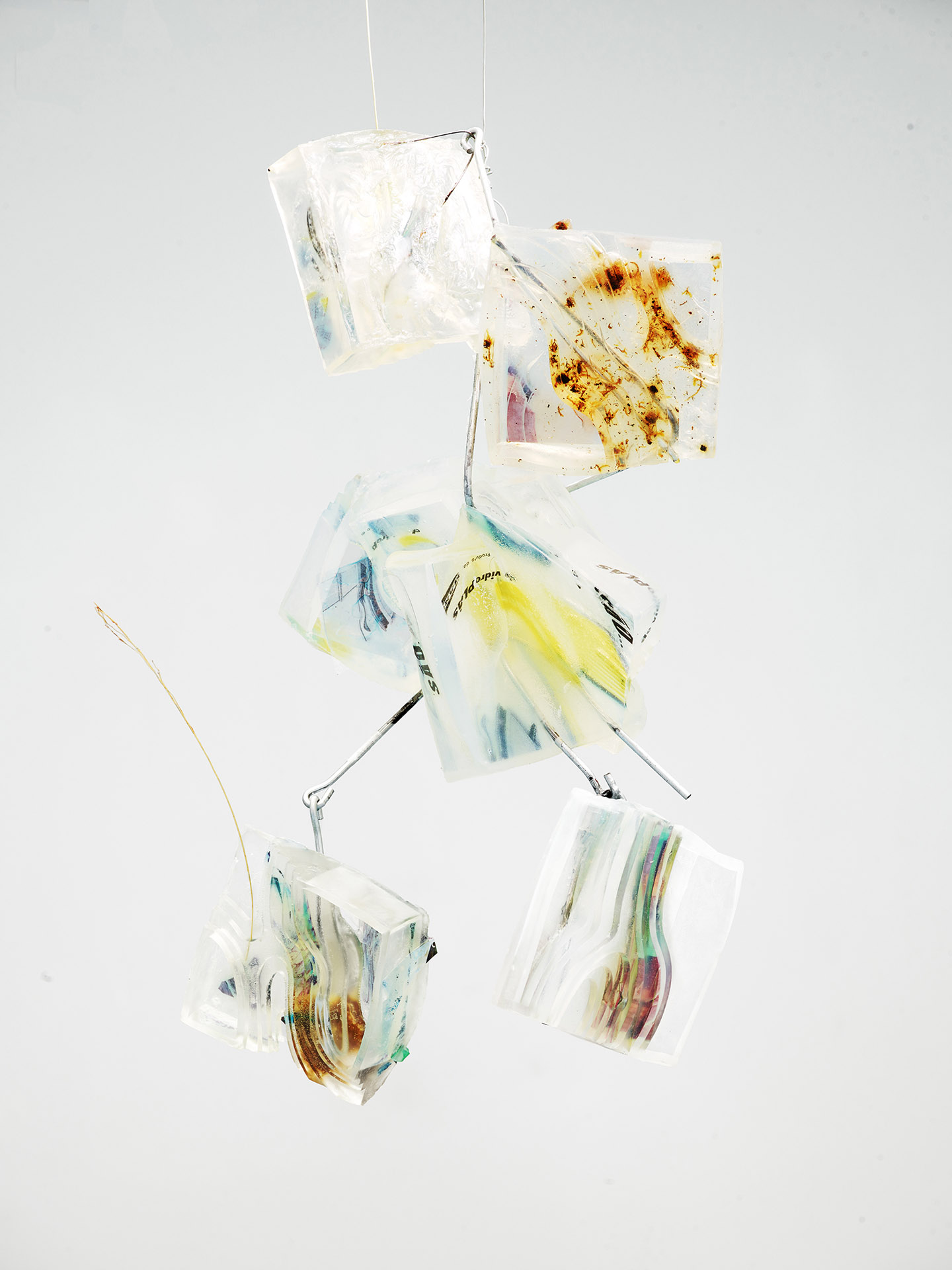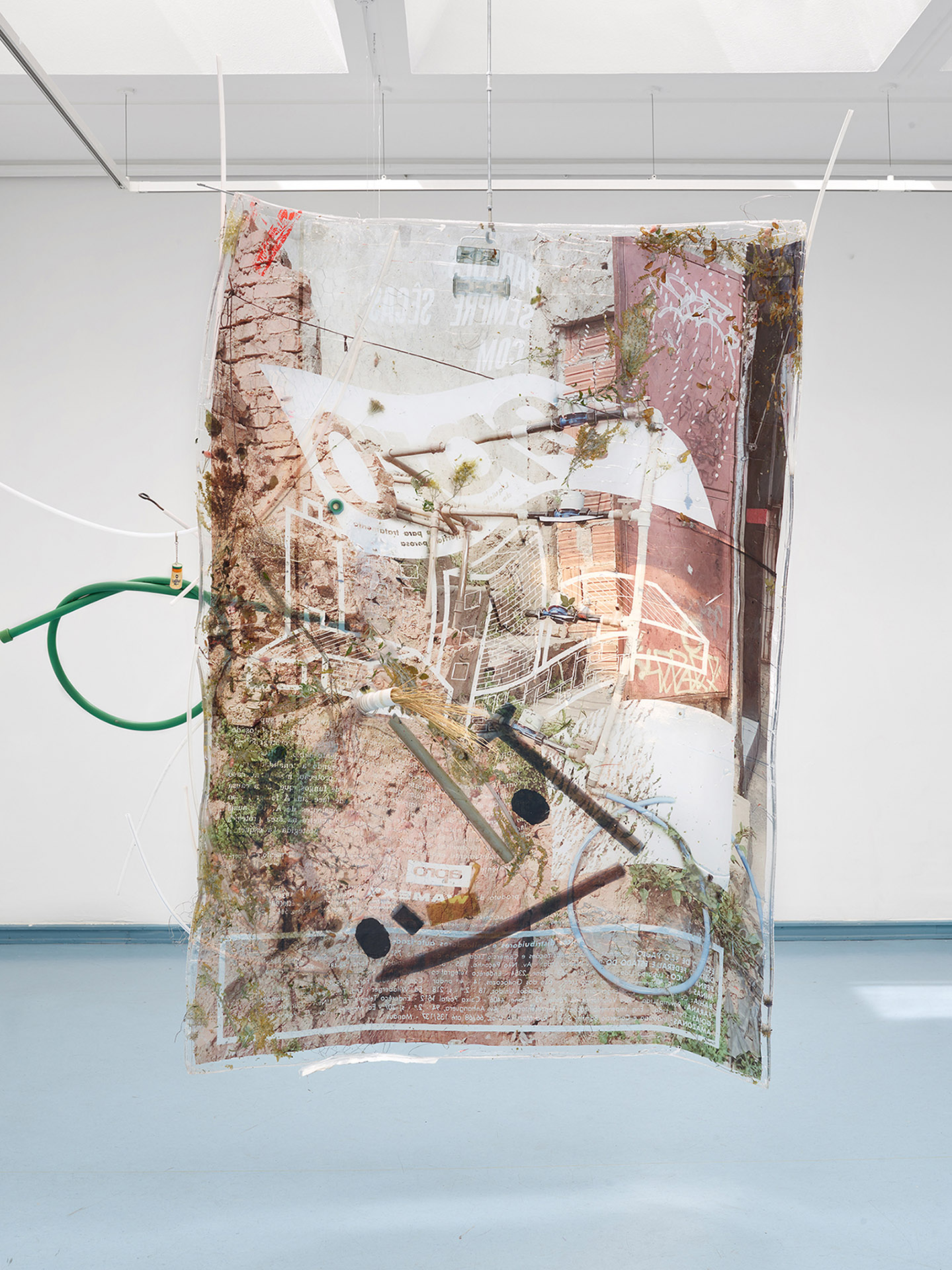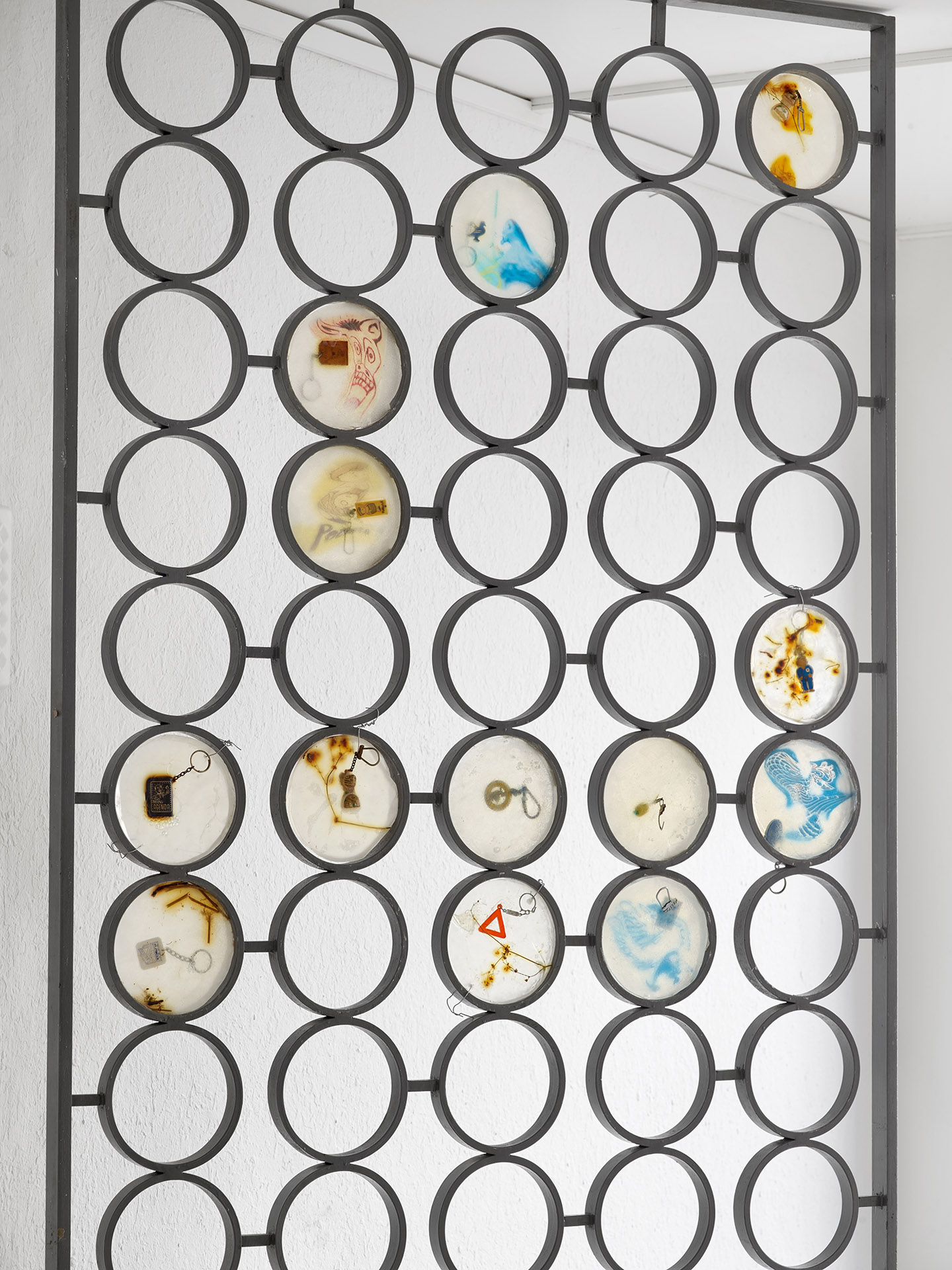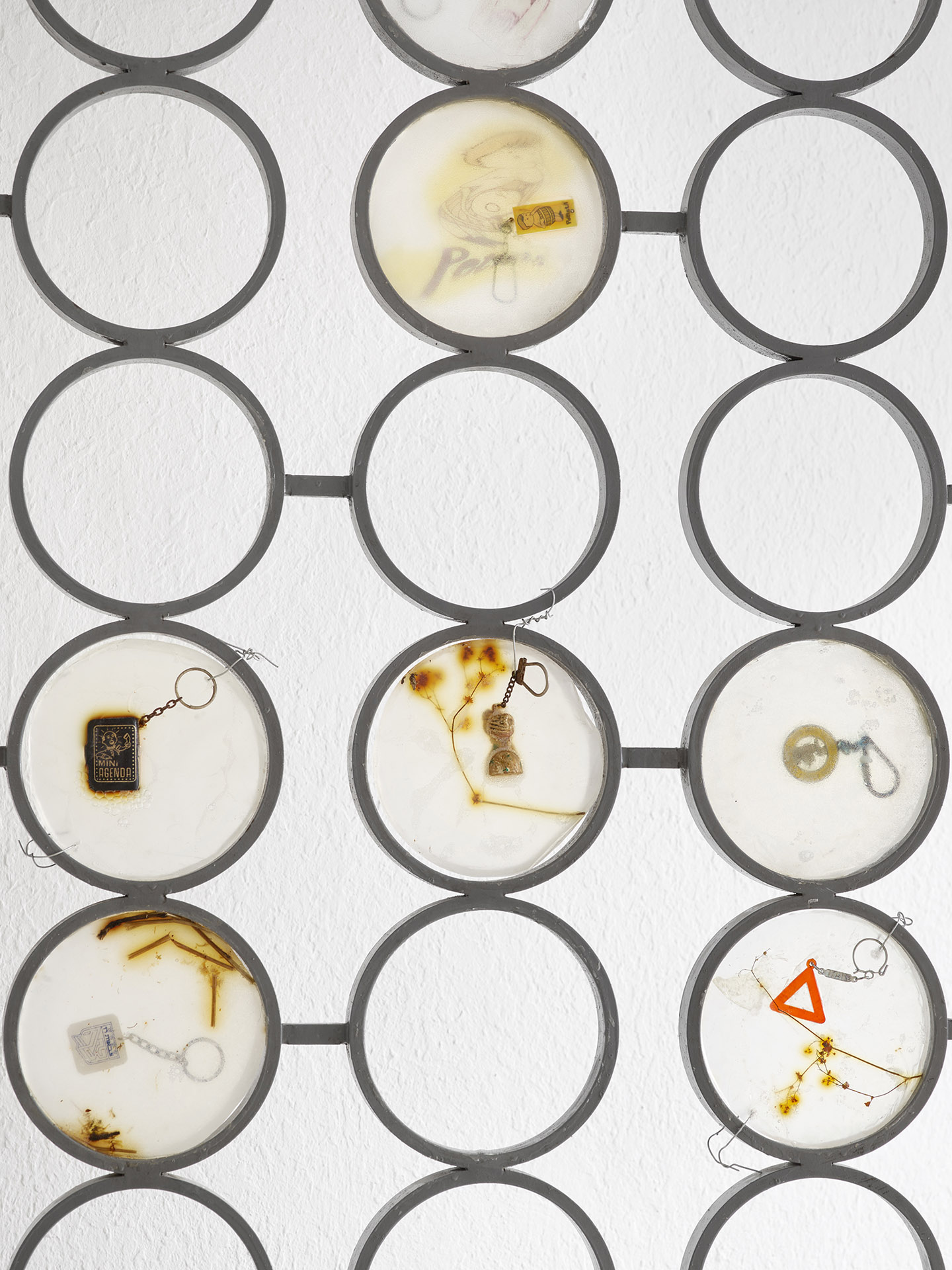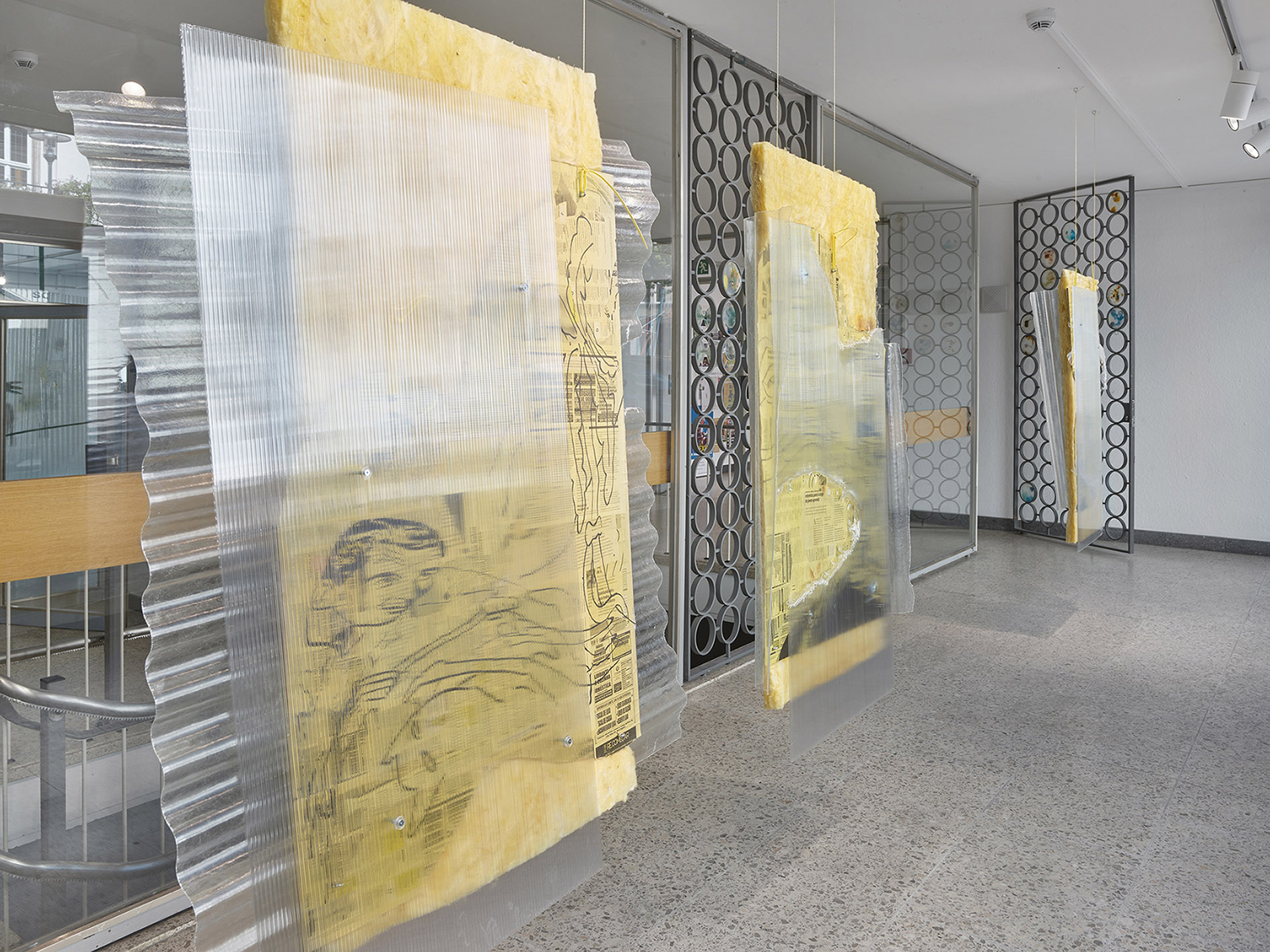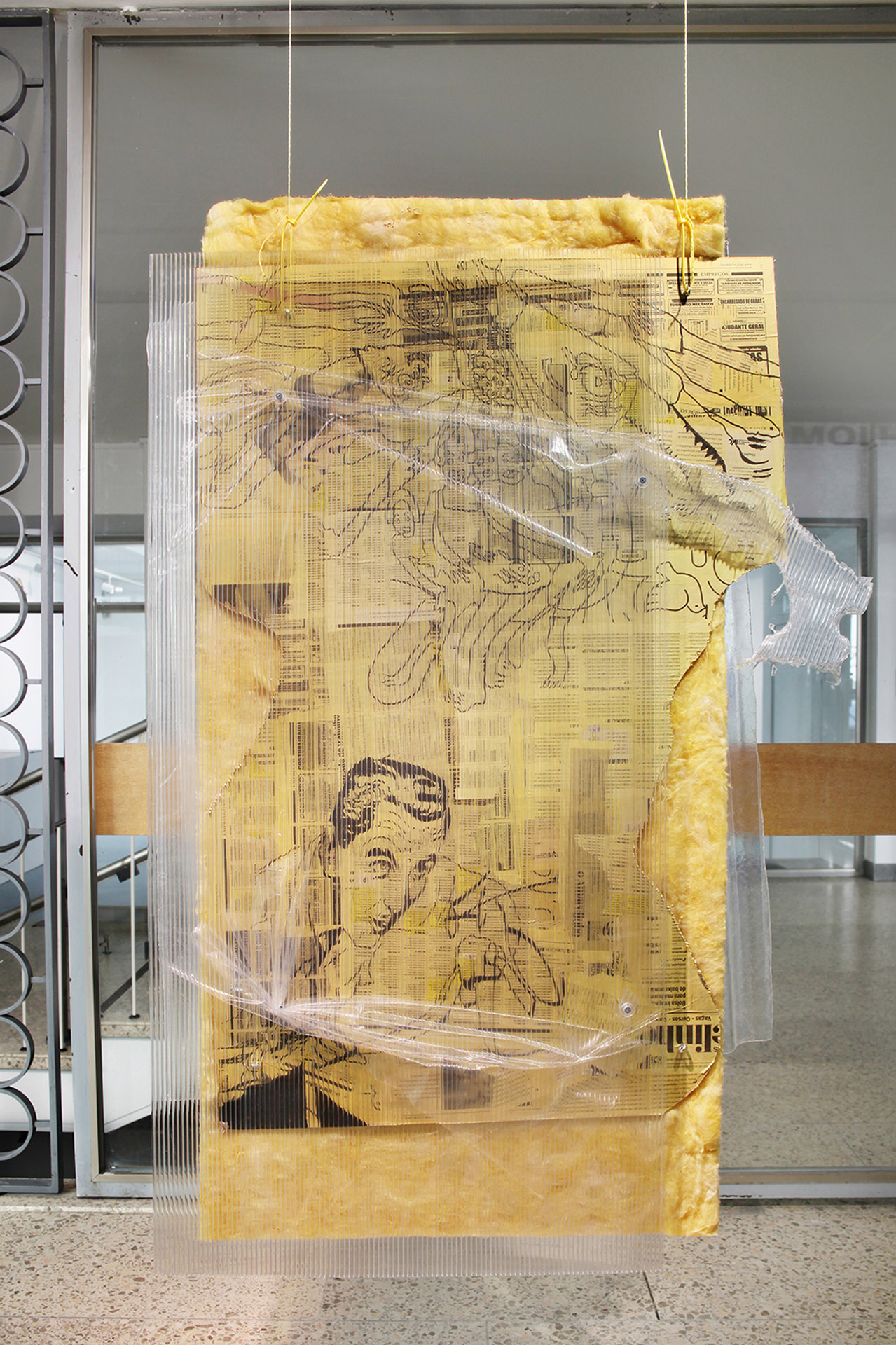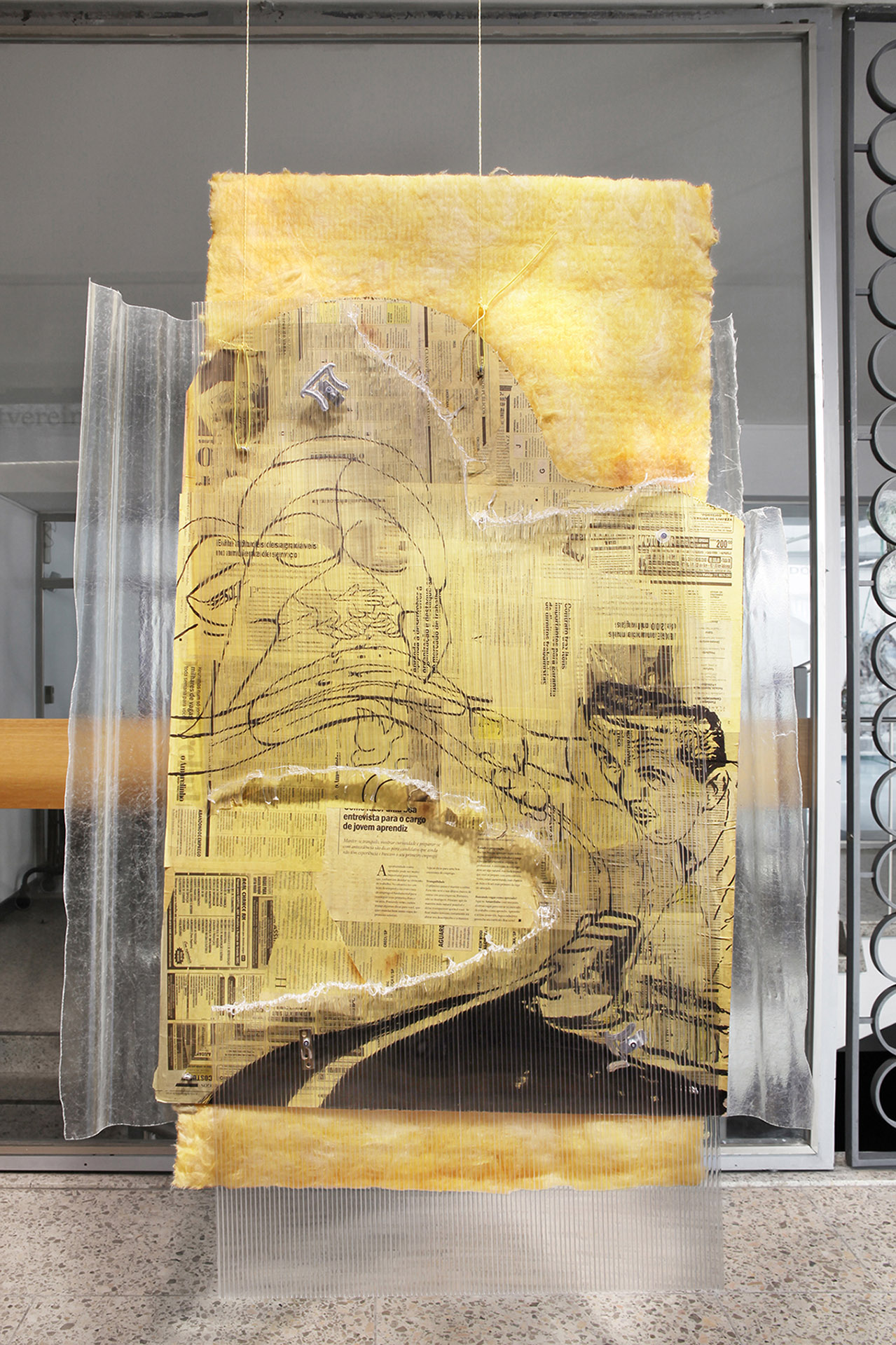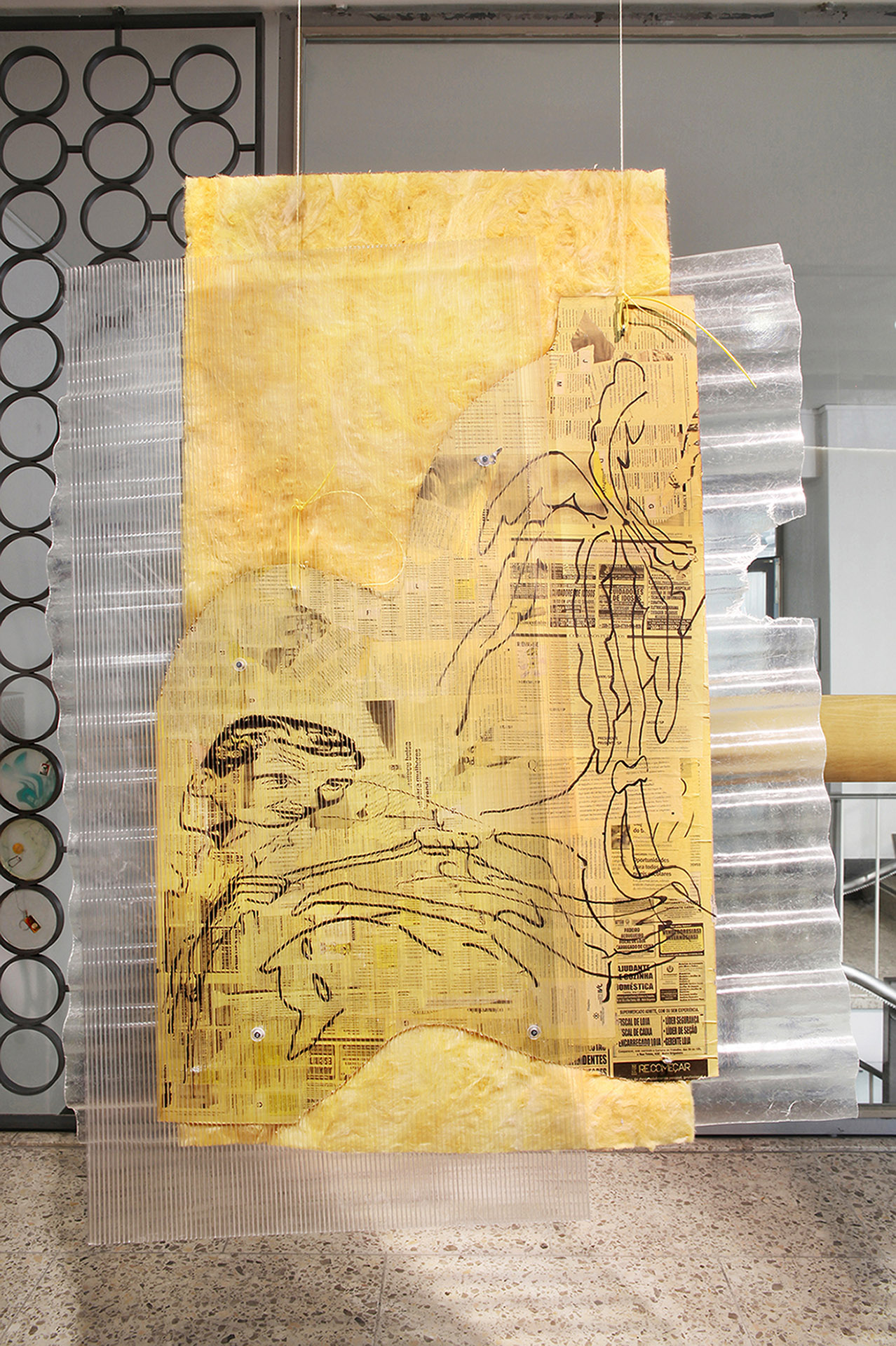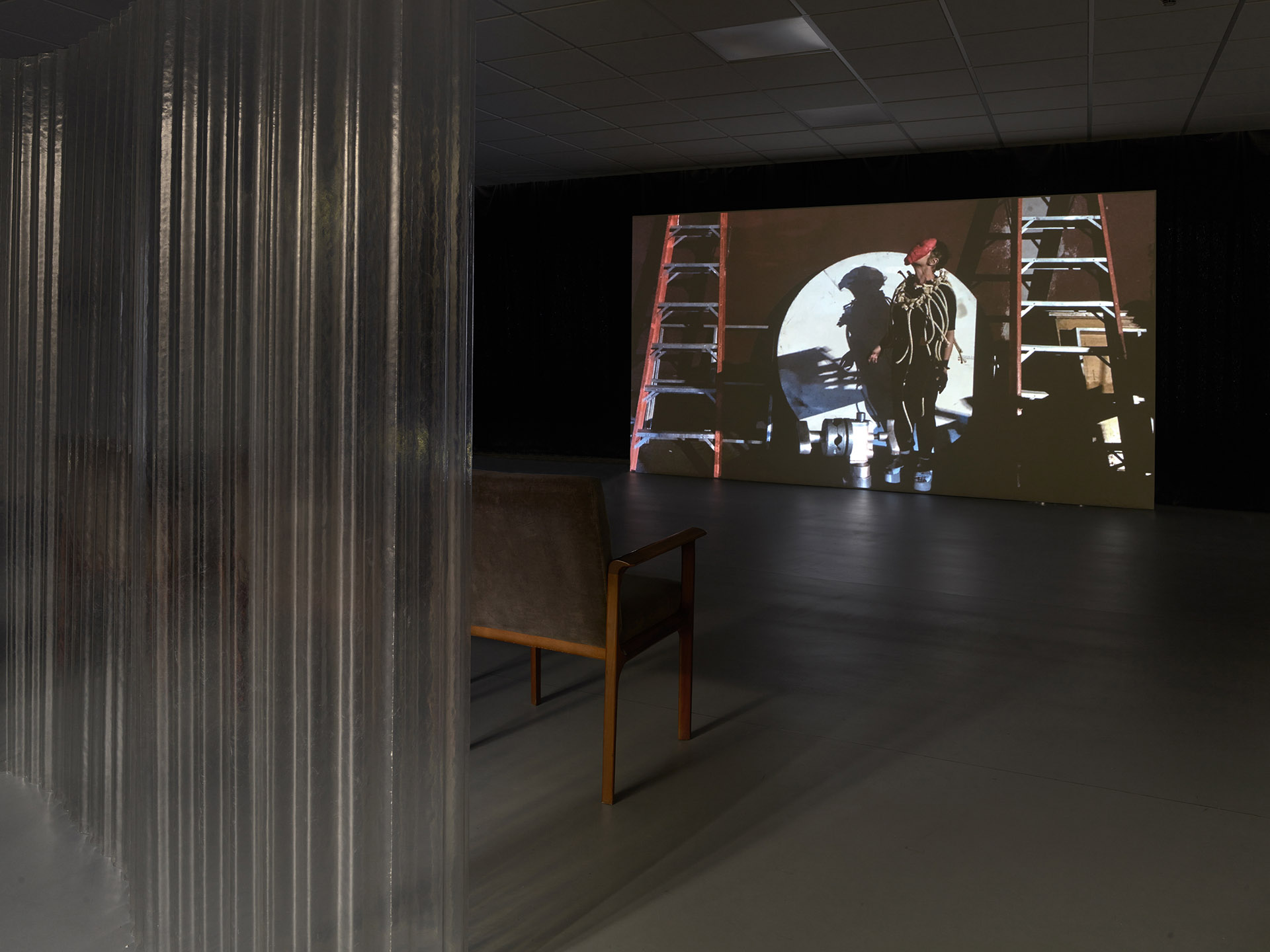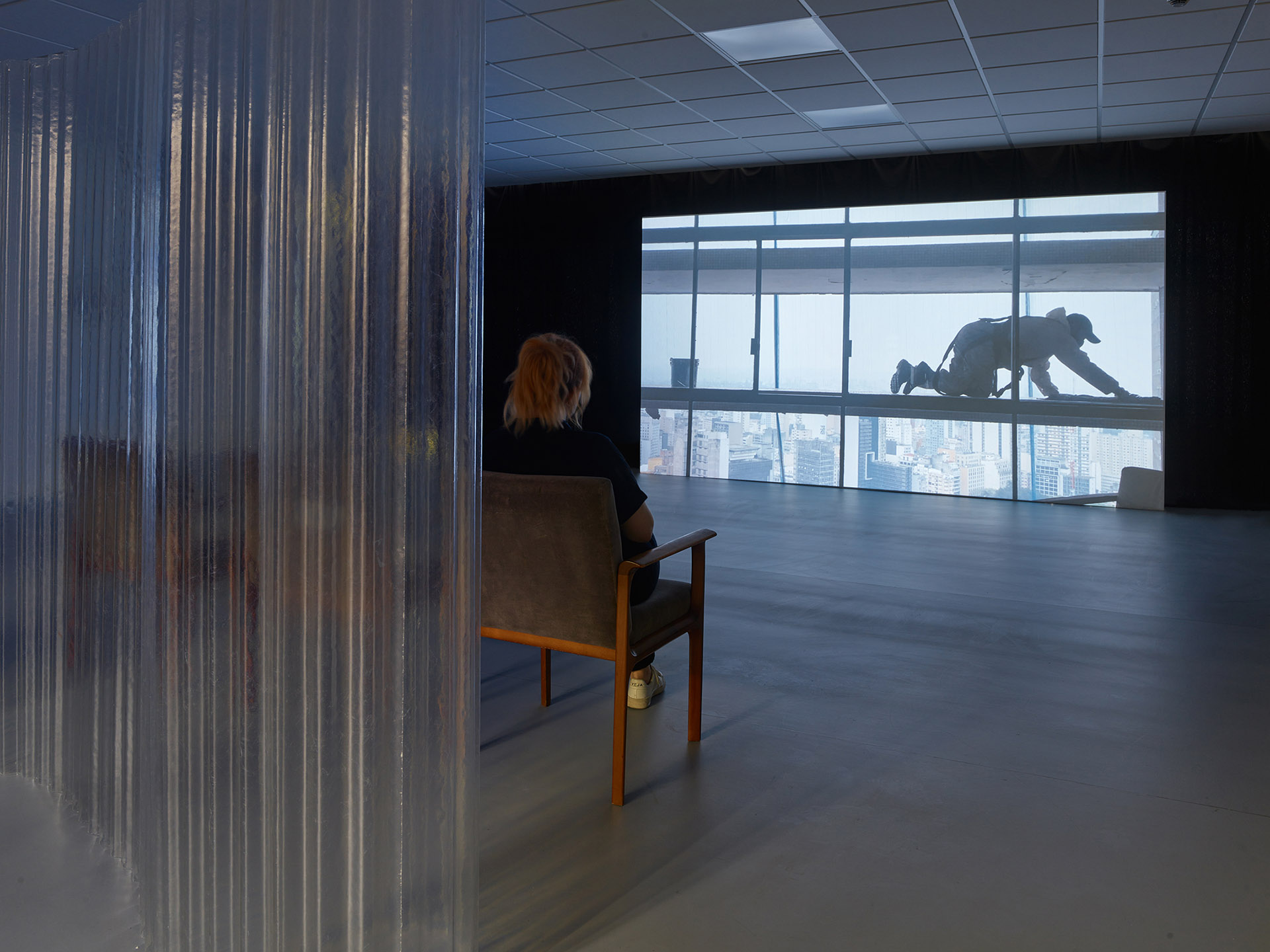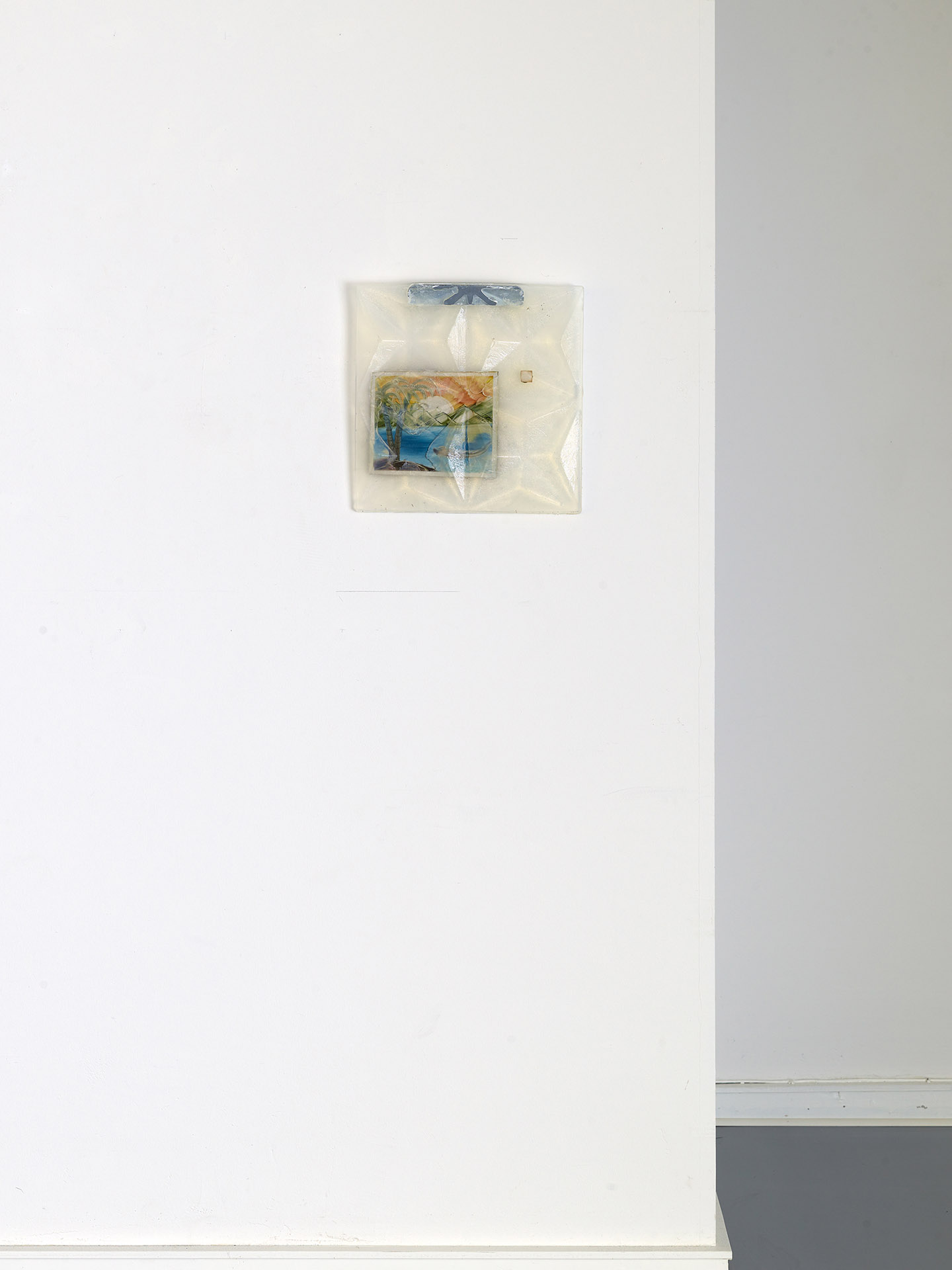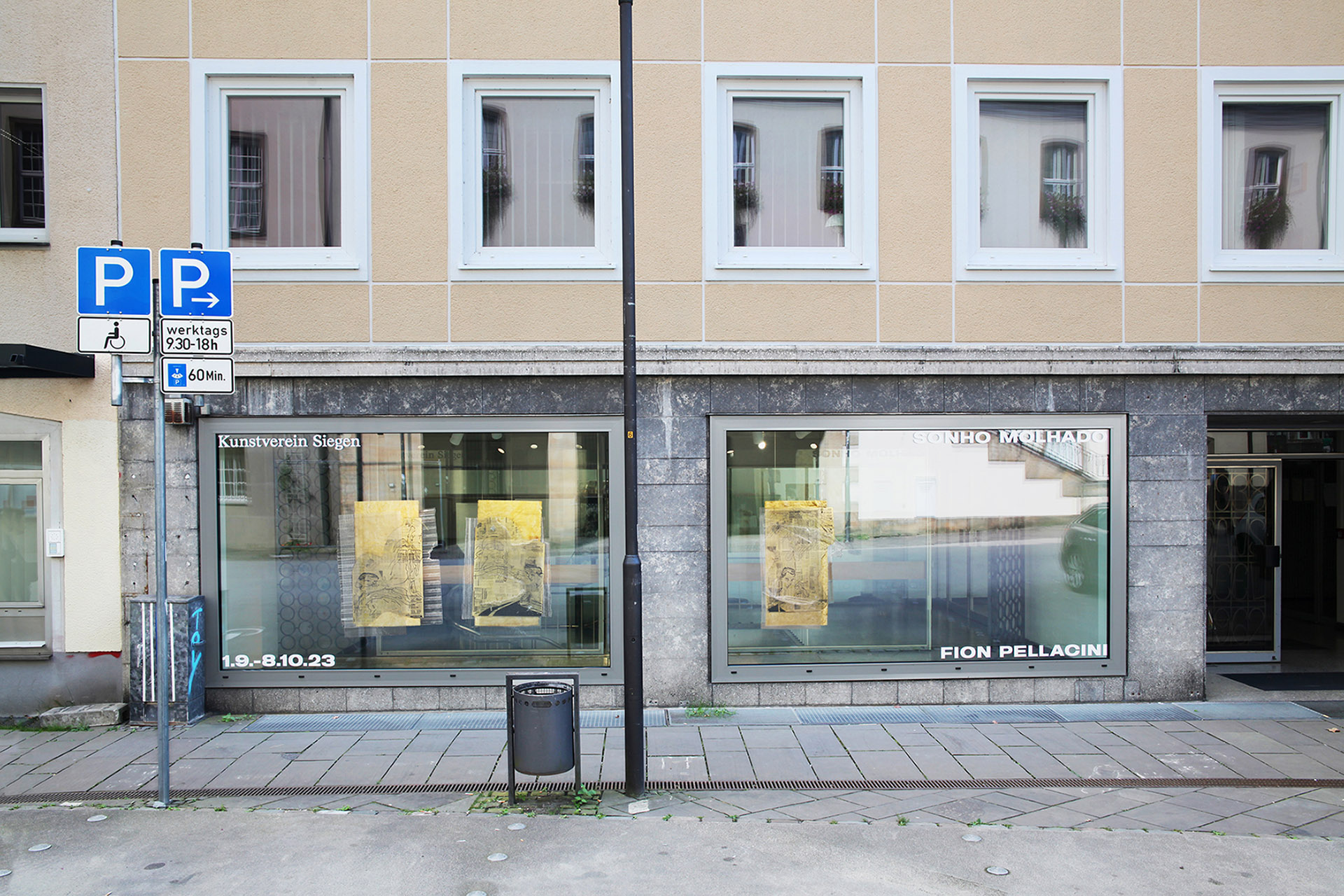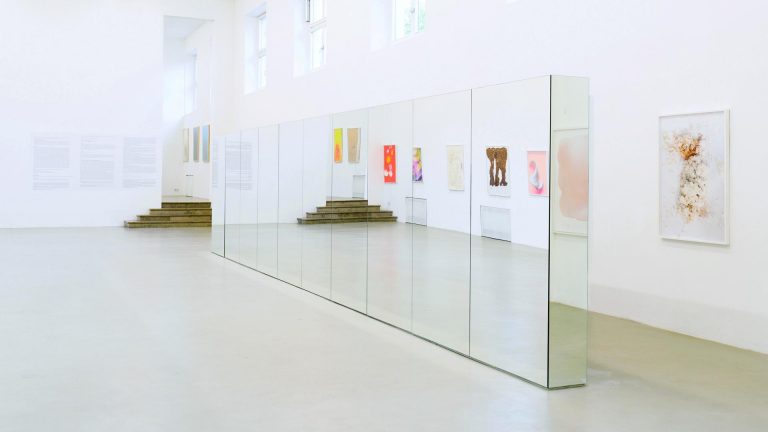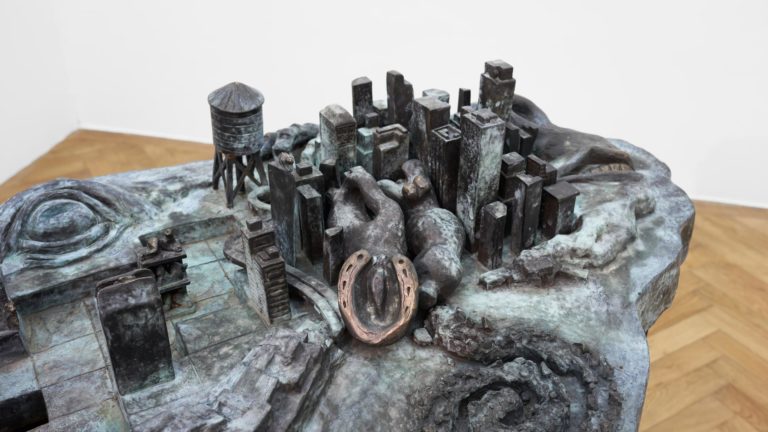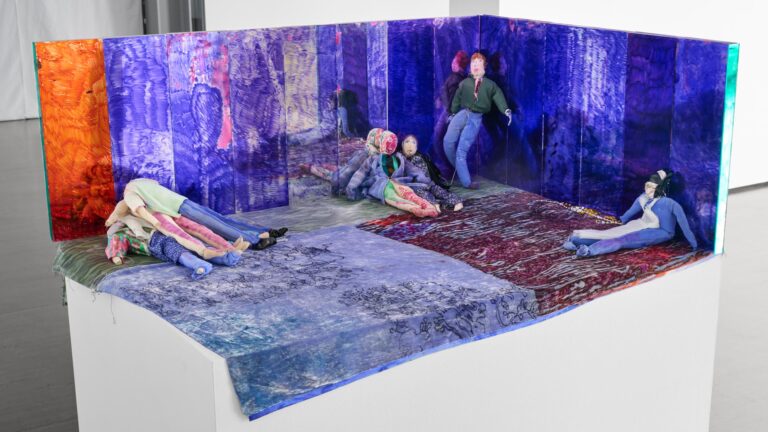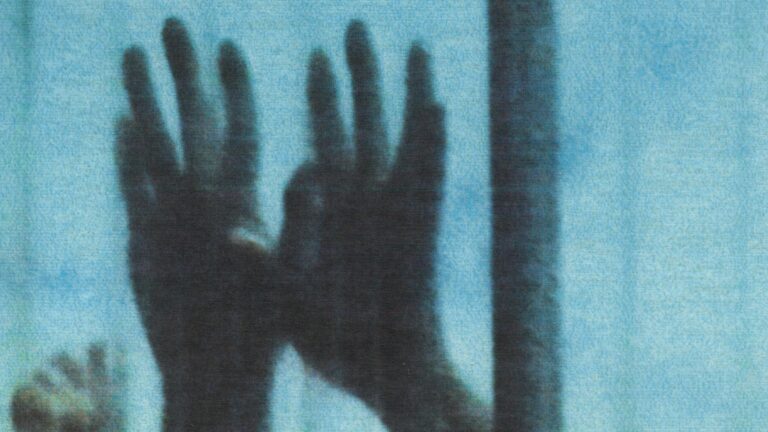Artist: Fion Pellacini
Exhibition title: Sonho Molhado
Curated by: Jennifer Cierlitza
Venue: Kunstverein Siegen, Siegen, Germany
Date: September 1 – October 8, 2023
Photography: Simon Vogel / all images copyright and courtesy of the artist and Kunstverein Siegen
Fion Pellacini (*1986) received the “Junge Kunst” promotional award from the Sparkasse Foundation for Art and Culture. The prize is awarded every two years by Sparkasse Siegen and Kunstverein Siegen to a visual artist.
In his performances, sculptures, installations, sound works, and collaborative projects, Fion Pellacini explores the niches and free spaces in which social utopias are attempted. Pellacini balances the need for protection with a desire for permeability.
Against the background of his own heterogeneous family history between Germany, Brazil, and Italy, the artist deals with the idea of antropofagía, a self-empowering aesthetic practice in Brazilian modernism. Its manifesto called for external influences to be incorporated mentally and mixed with existing local elements, aiming to generate a hybrid cultural practice.
When Brazil’s capital was inaugurated in 1960, the idea of Brasília was considered an architectural utopia: all social classes were supposed to share the same space and fundamentally shape all aspects of their own lives. The idea triggered a vernacular way of creating modernist buildings that also caught on Pellacini’s grandparents in São Paulo. They designed their house using local resources and typical regional modernist building forms. Pellacini now adopts this vernacular way of working and its building elements, creating an iconographic and visual archive of this time, through his large collection of historic key chains and original moulds for construction that he uses for his works: He collects various materials and quotidian things, changes their original forms, combines them with objects he discovered in his personal environment and, thus, transforms them into new contexts.
Pellacini also uses simple, cheap materials from everyday life. He casts and recasts soap – either because it broke or in oder to formulate a different, new idea. If the humidity is too high, the soap melts and becomes liquid. Pellacini thus questions both: the stability of the material and the idea of the durability of an artistic form. Thus, unfinished processes of formation and transformation are not just conceptually at the core of Pellacini’s practice but are mirrored in the materials themselves.
Corrugated polyester sheets are an elementary component of the expansive installation. The volume formed from these sheets becomes visible both from within and from the outside, dwelling from the ambivalence of the bodies and the space. It is transparent and impenetrable at the same time, allowing the space to be experienced in a potentiated way at the outer and inner boundaries of the elements.
His work transgresses the boundaries of temporality while being located in the present. It emphasizes openness, transparency, and permeability both in the visual act and in life itself, which has remained a utopia until the present day, not only in Modernist Brazil. Contemporary urban politics of space consist largely of thresholds and borders, and through codes and systems making the spaces accessible to some and impermeable/ closed to many. The principle of proclaimed permeability ends at the gates of gated communities.
The title of the exhibition “Sonho Molhado” (in Englisch: “Wet Dream”) references the liquid, which runs through the entire exhibition as a metaphorical material behavior. In a figurative sense, the exhibition questions the social utopia of modernism, focussing on where it still lives on today and where it was perhaps only a wet dream.

